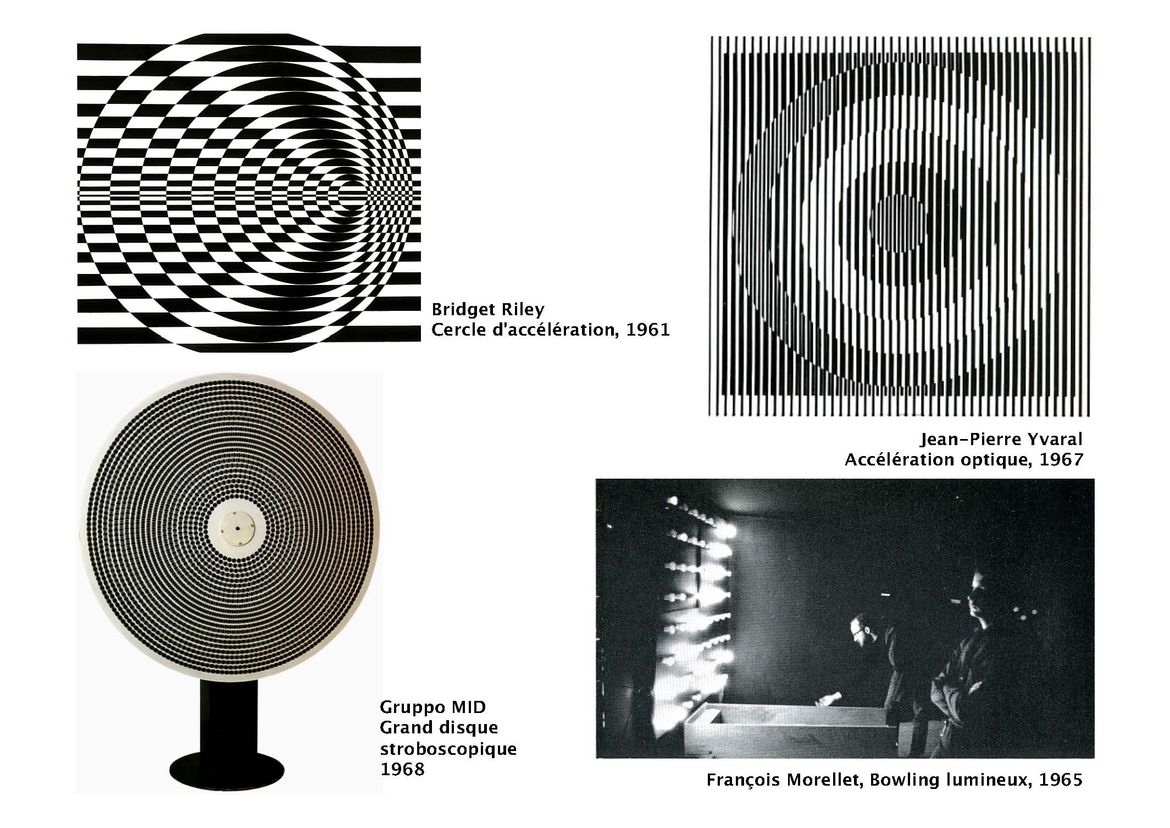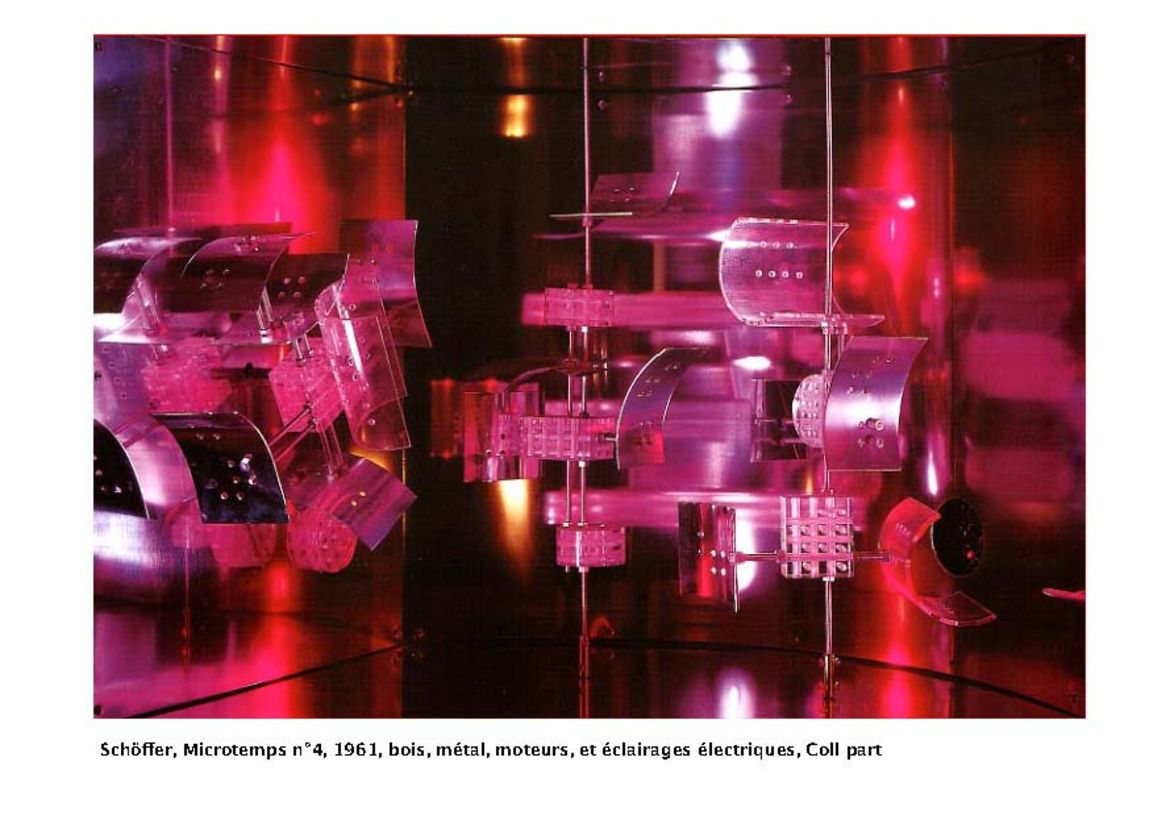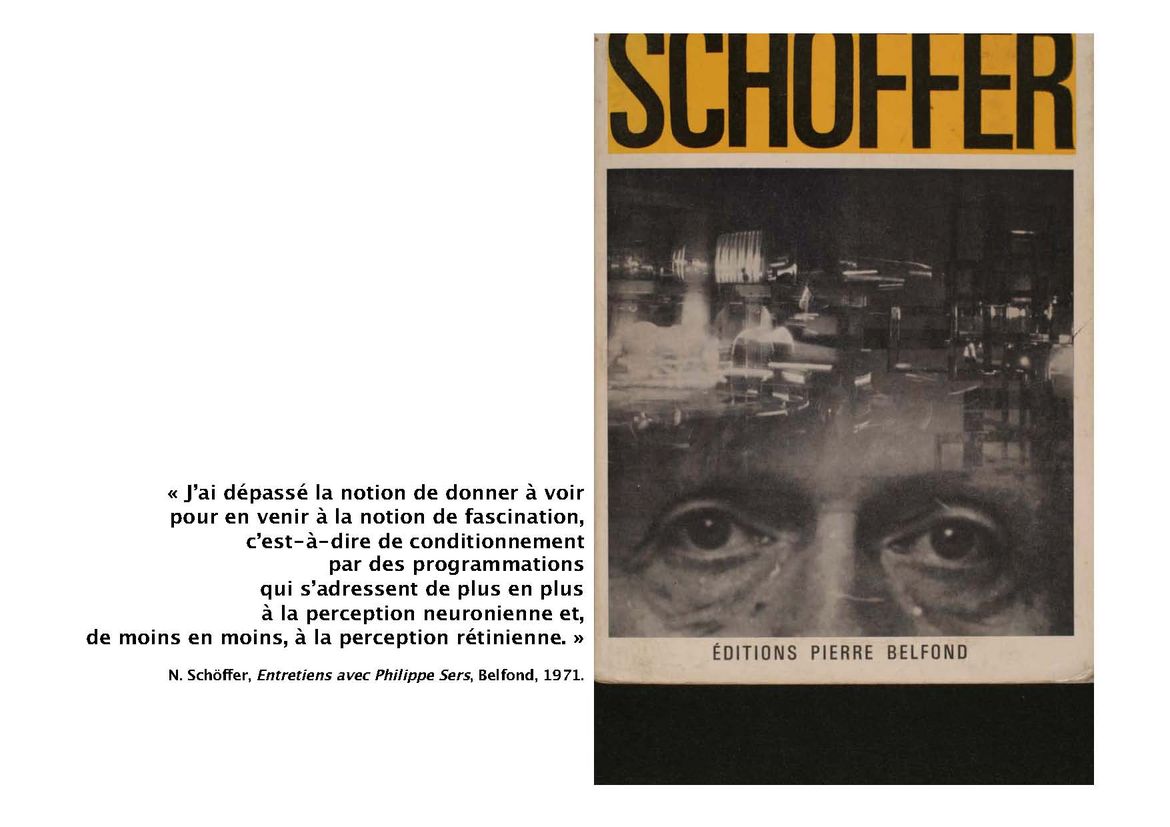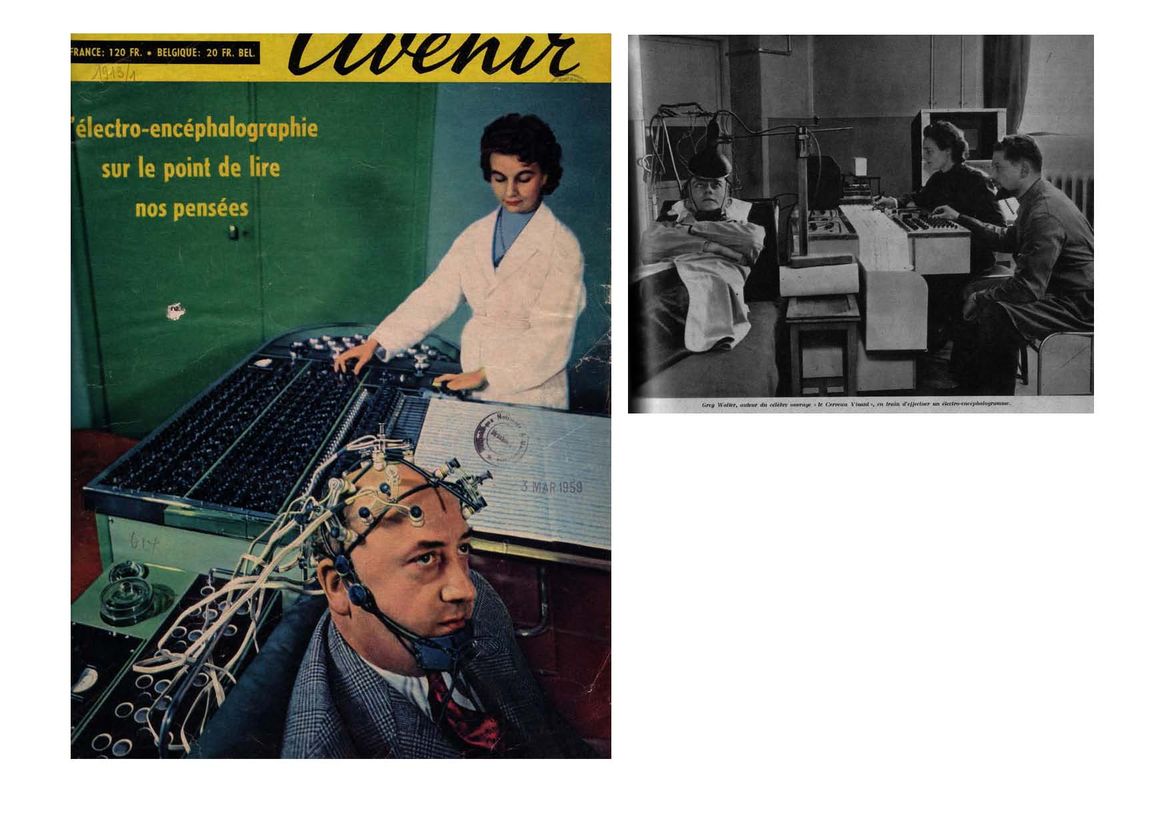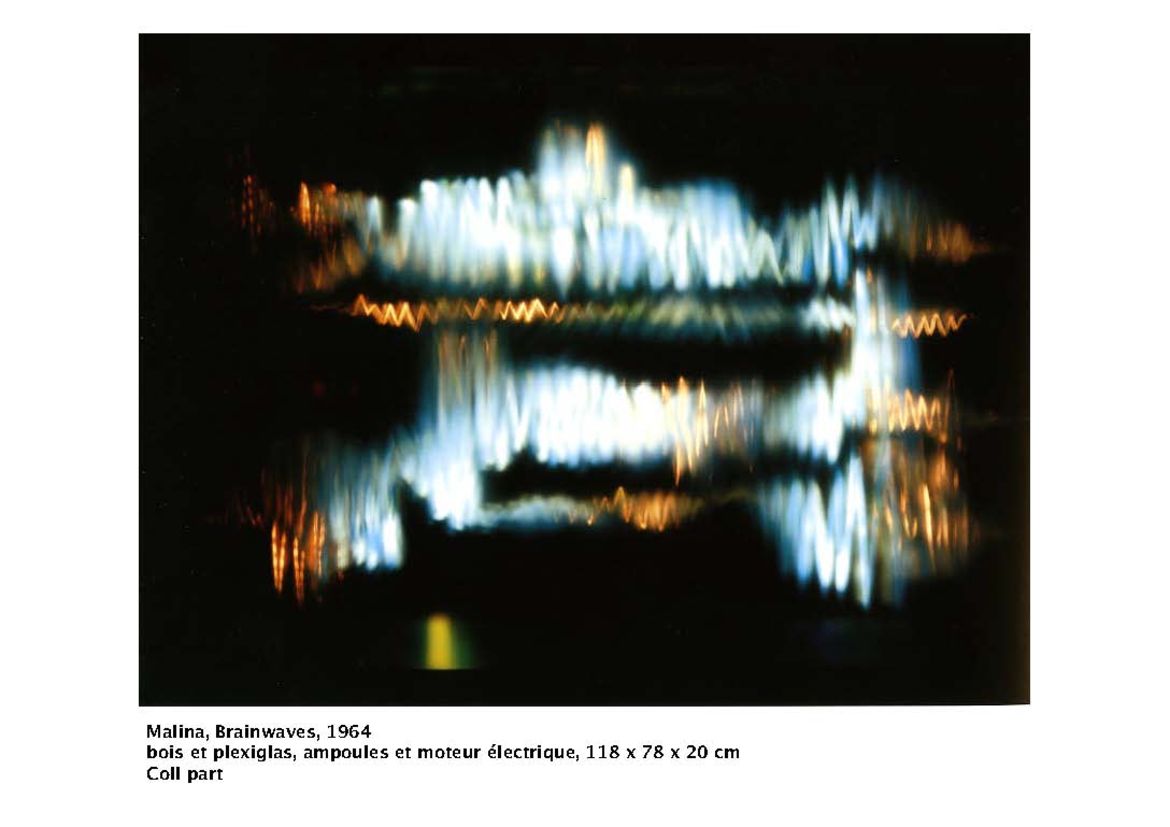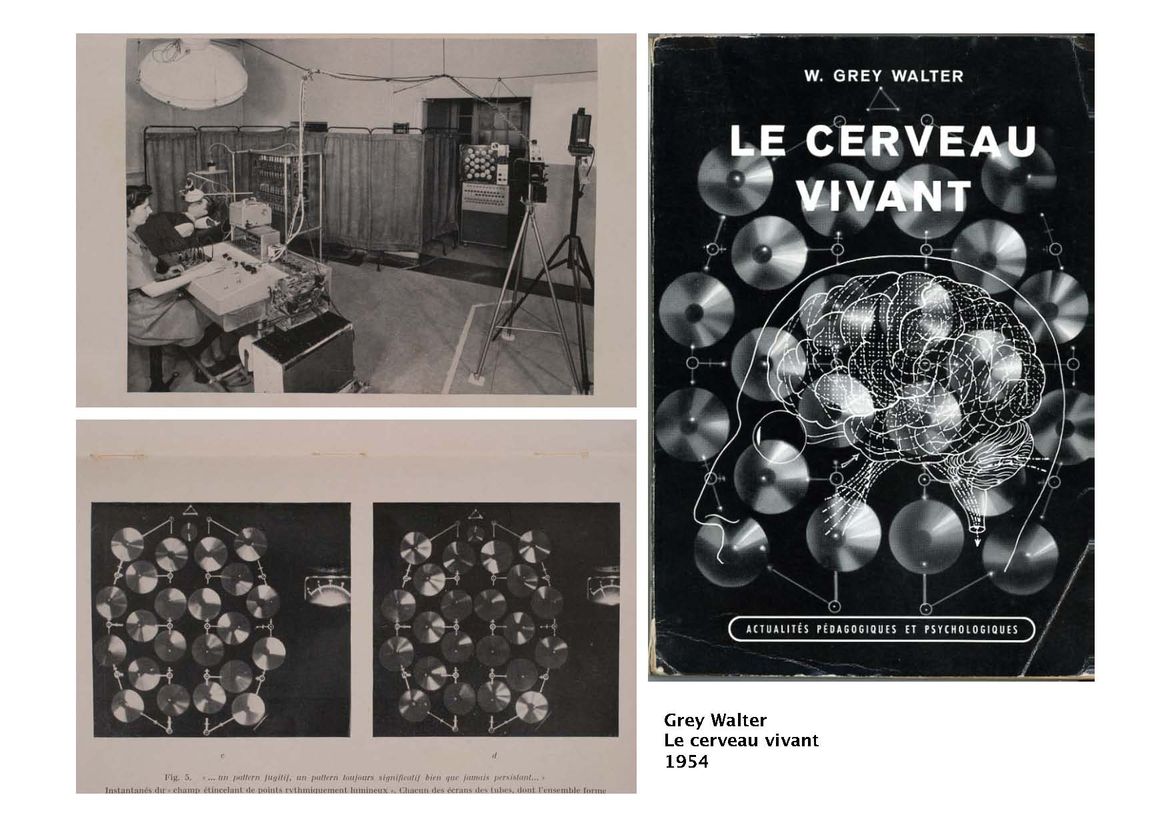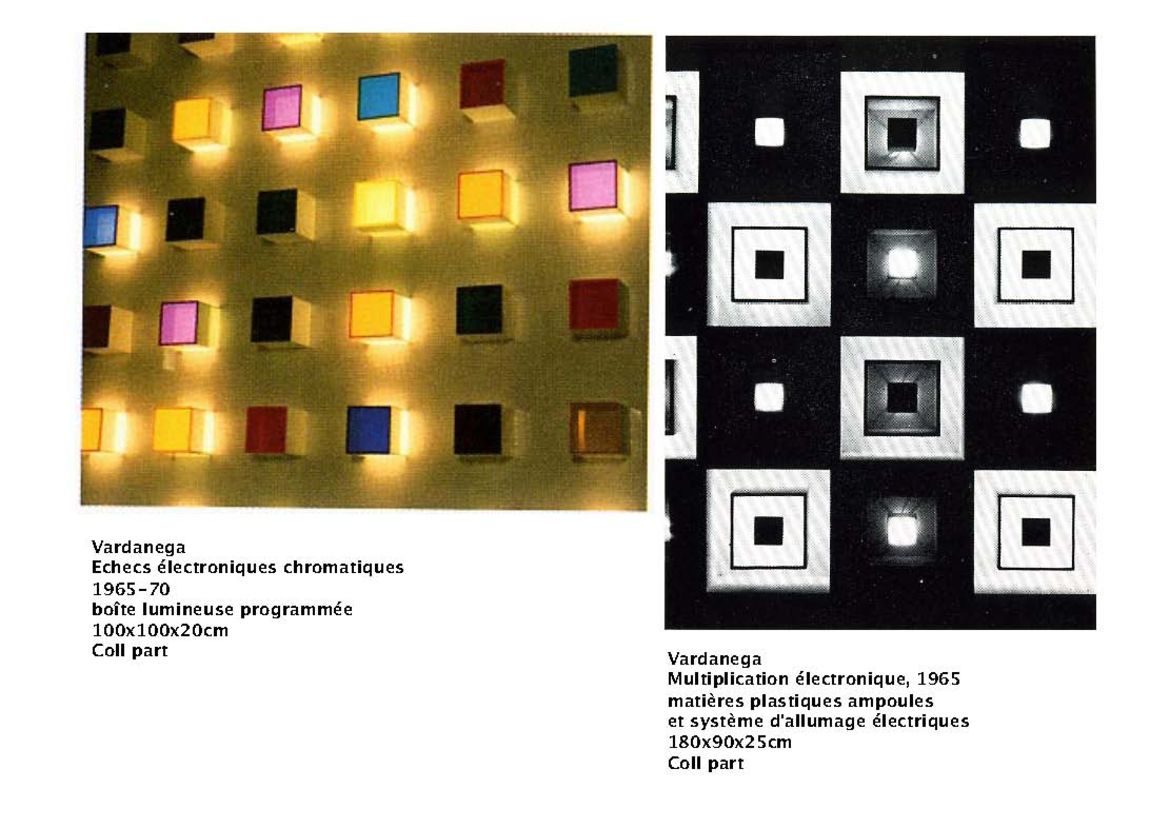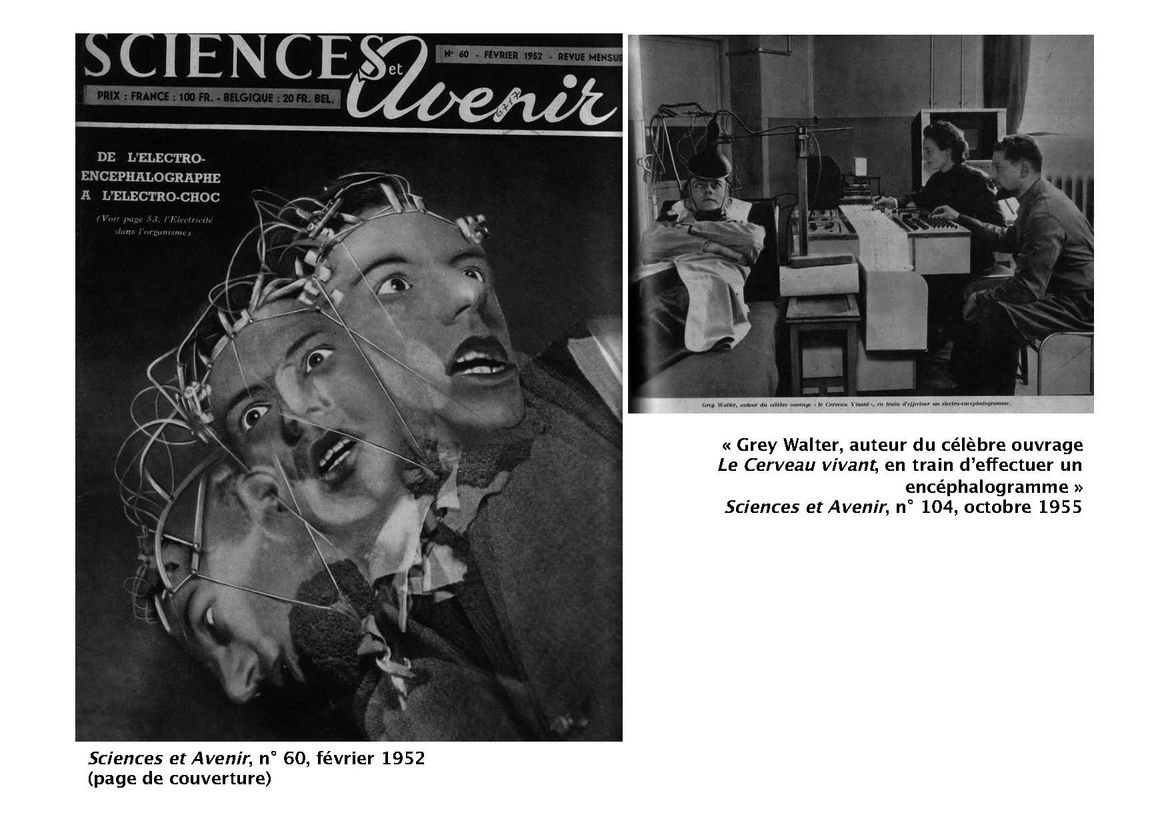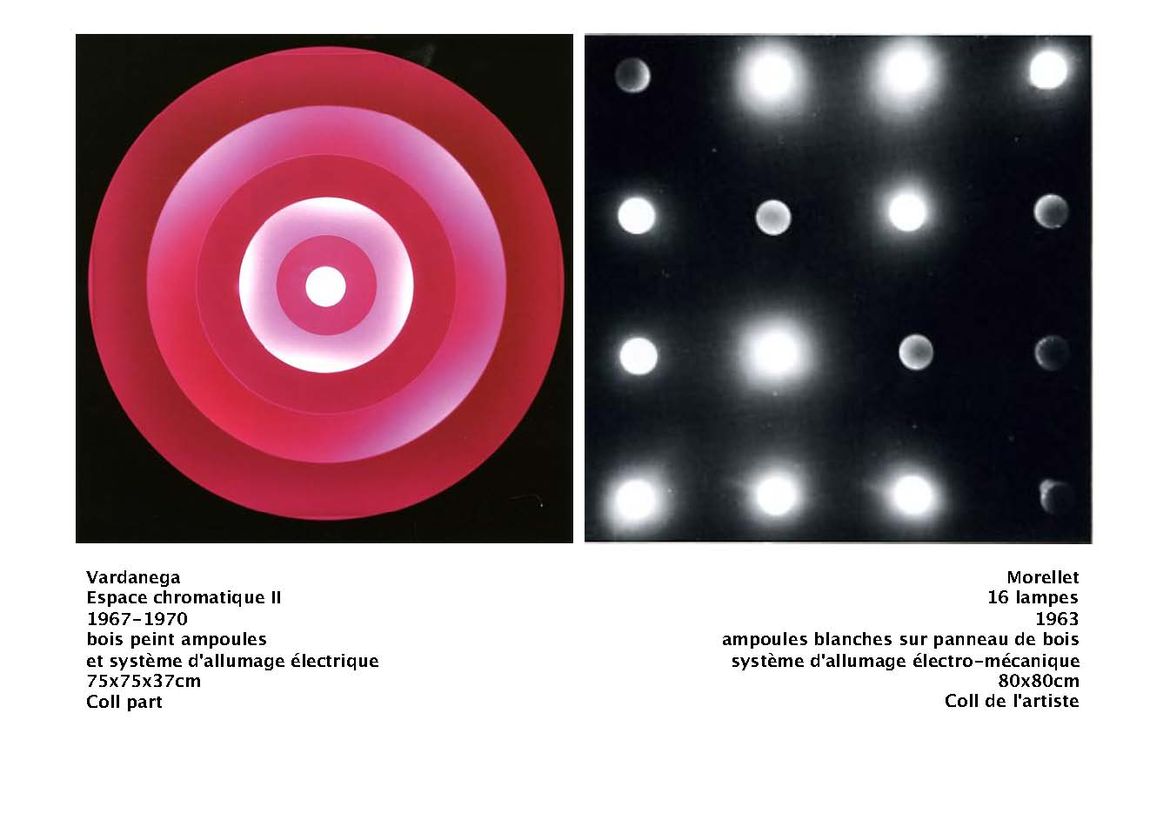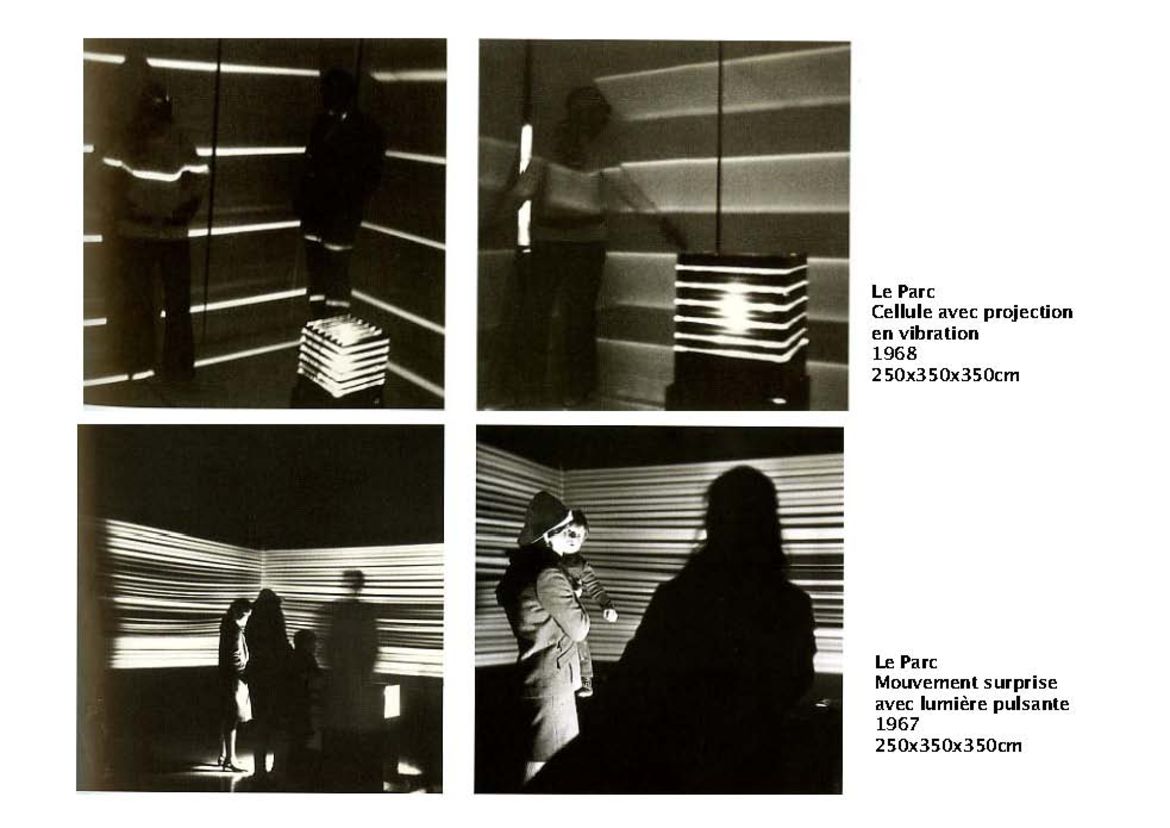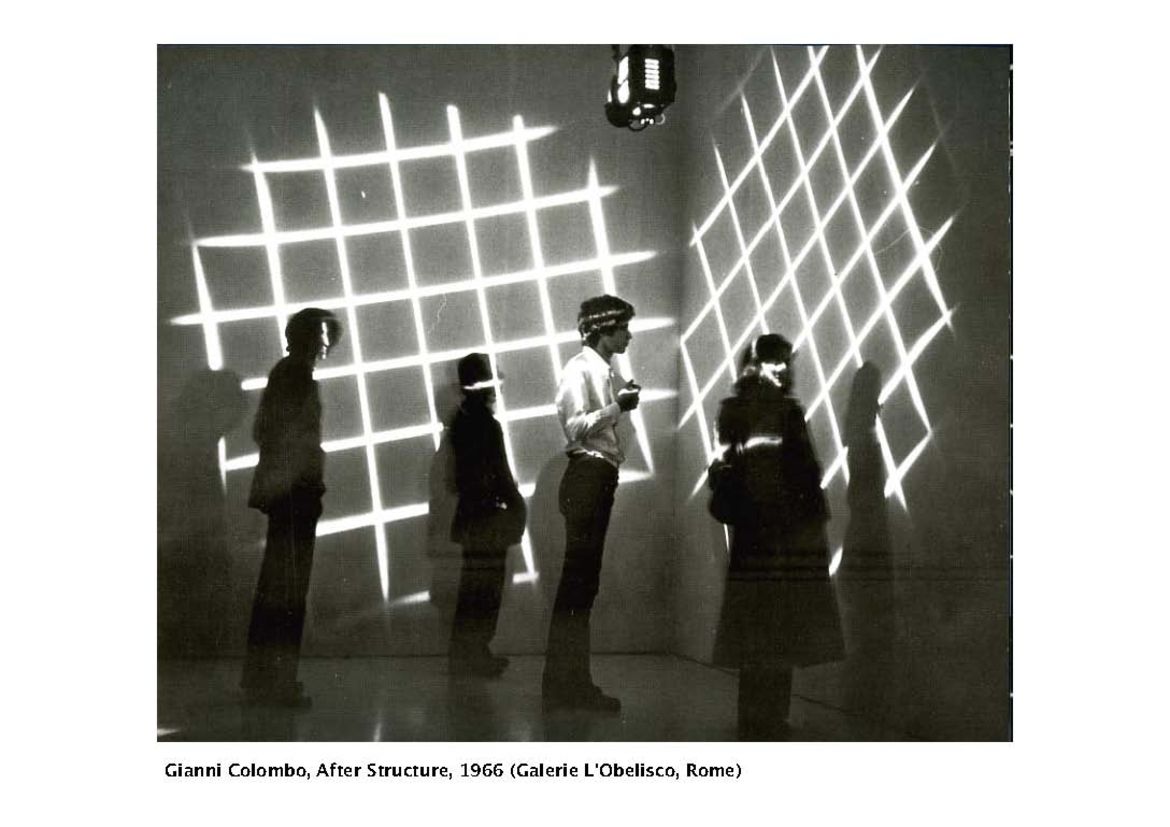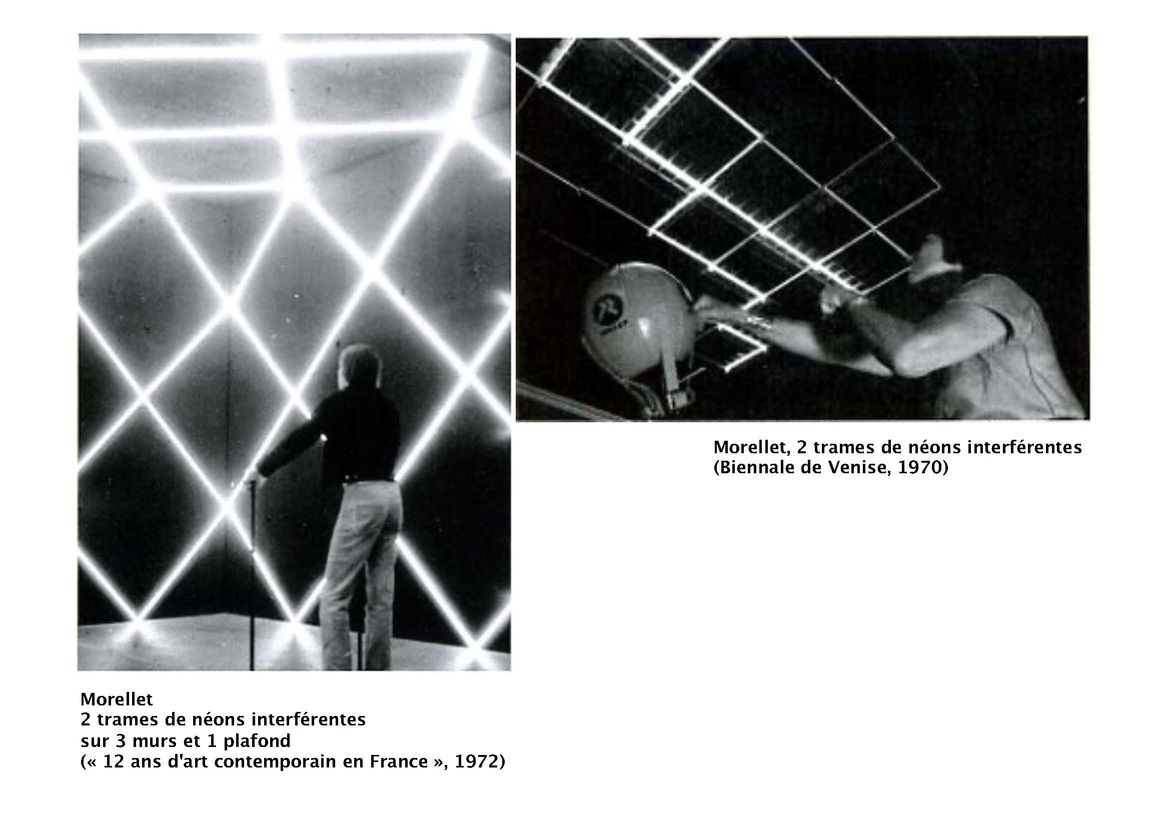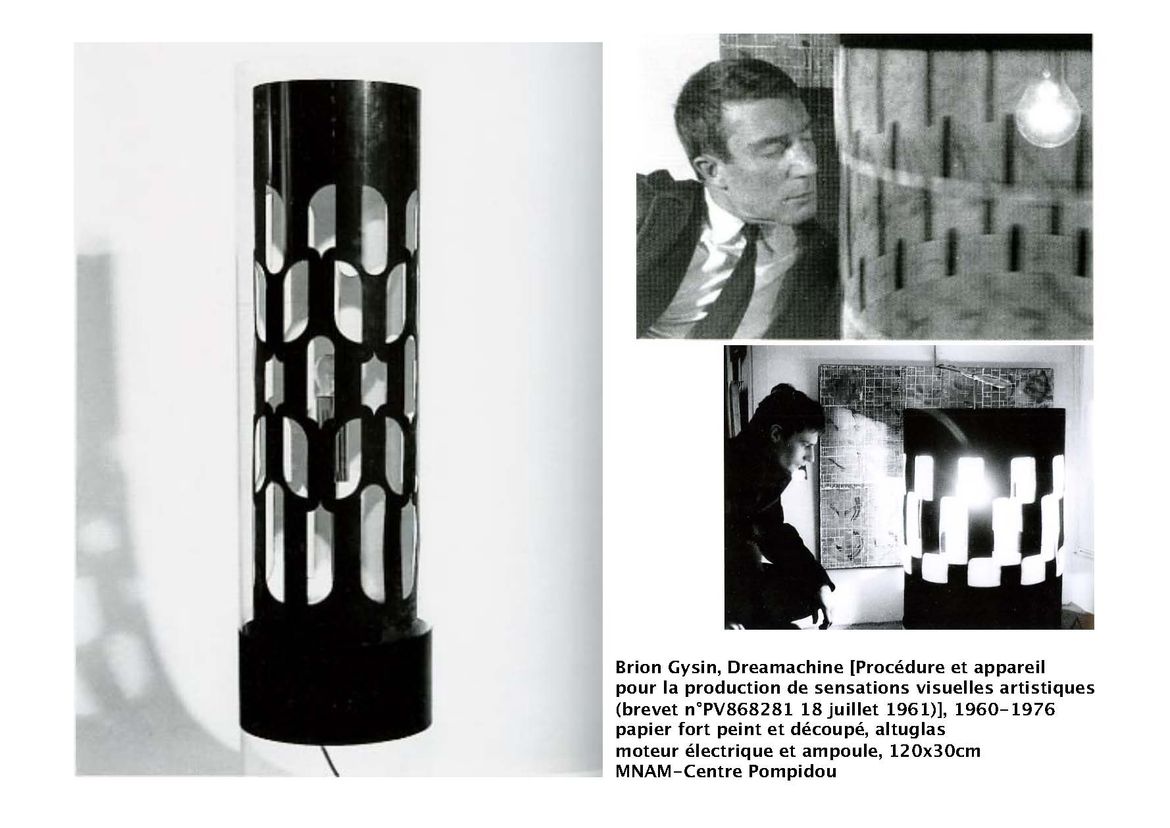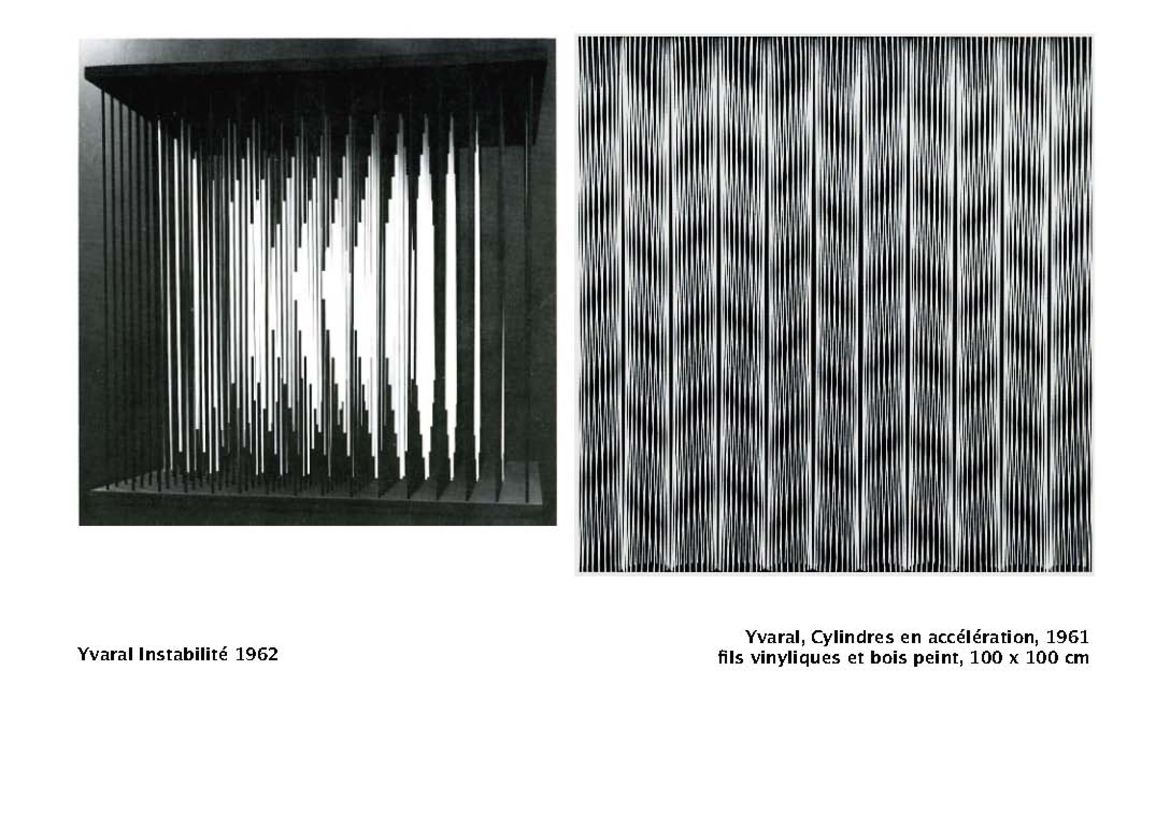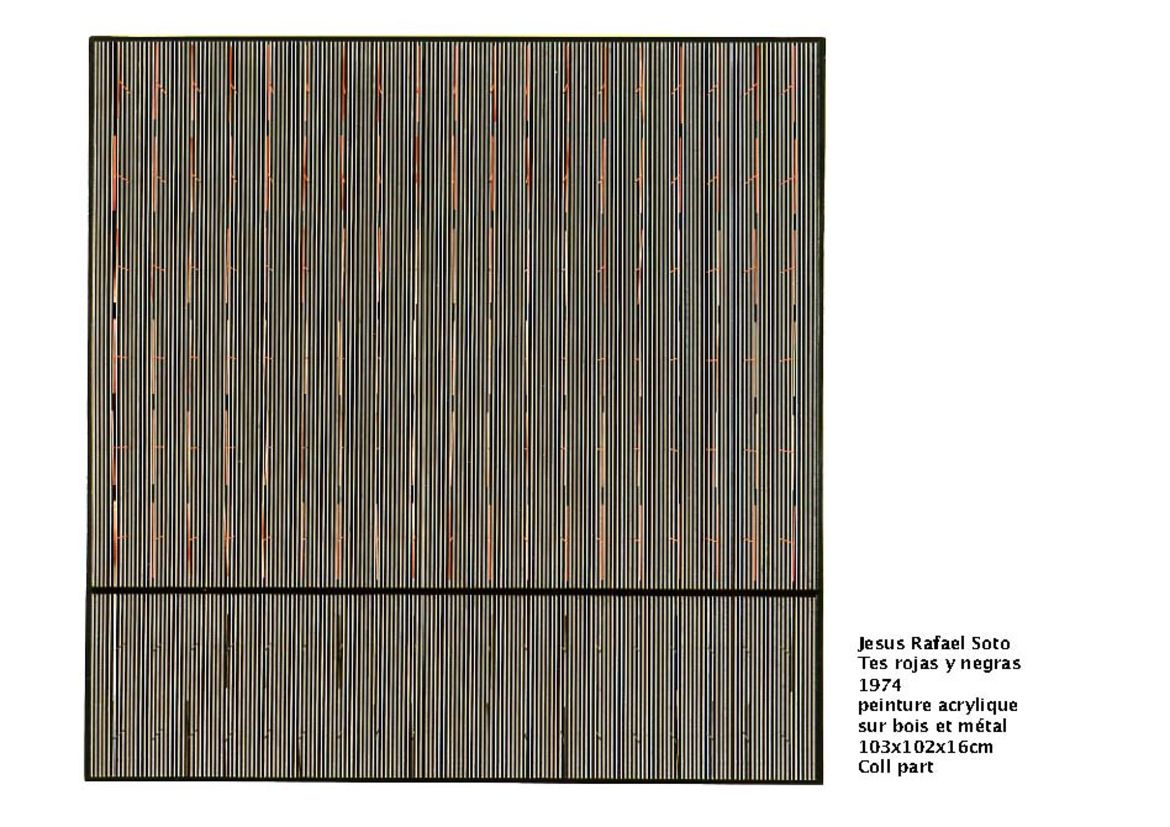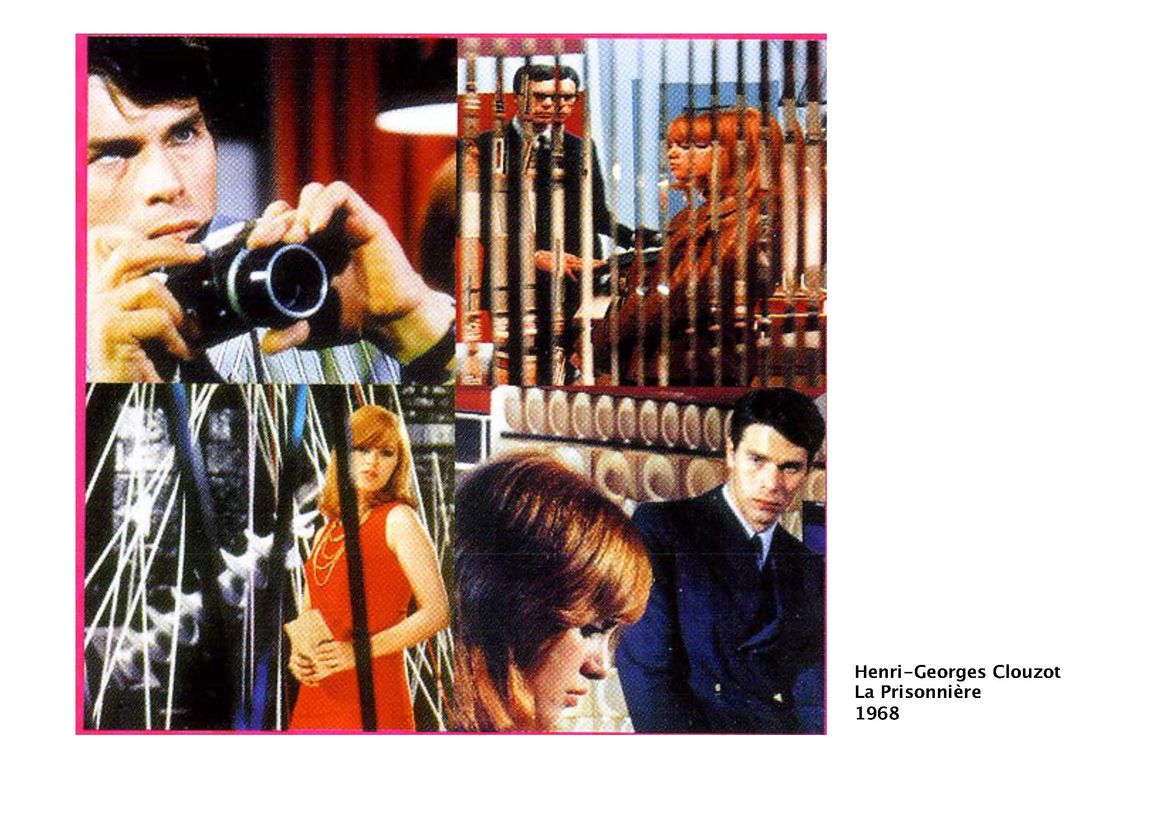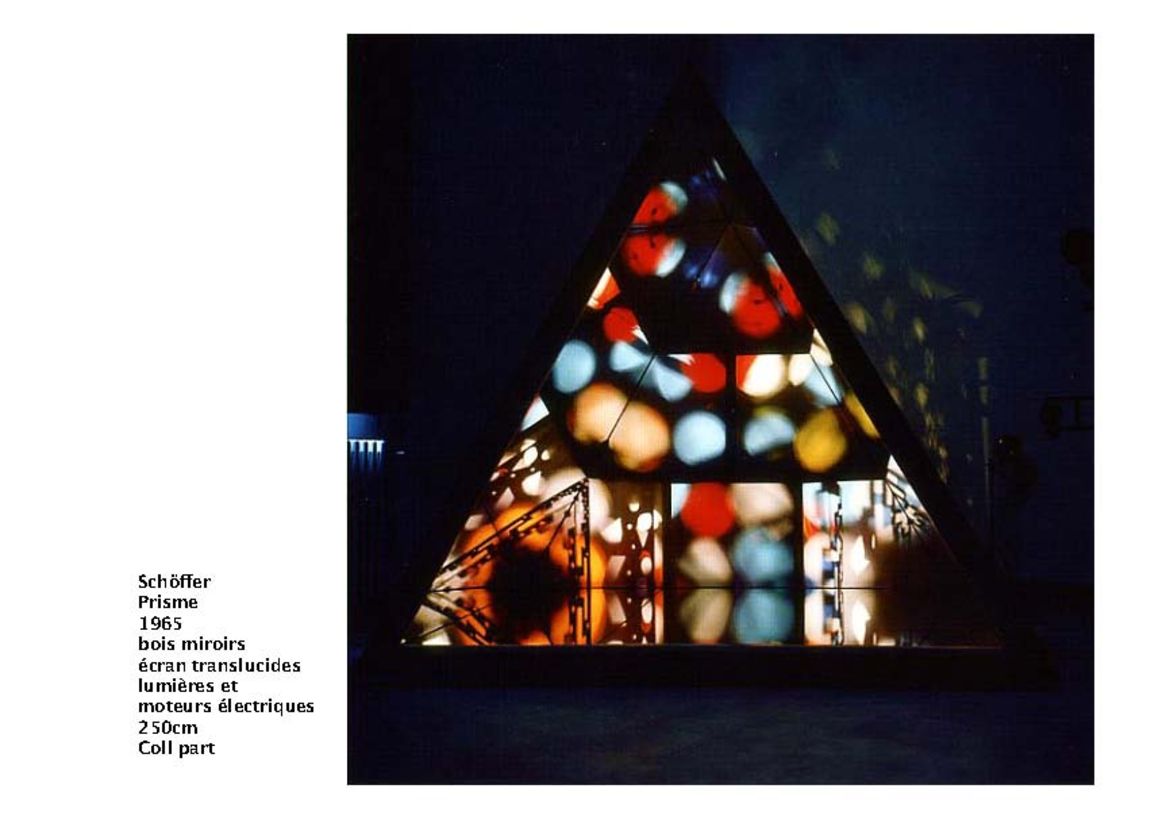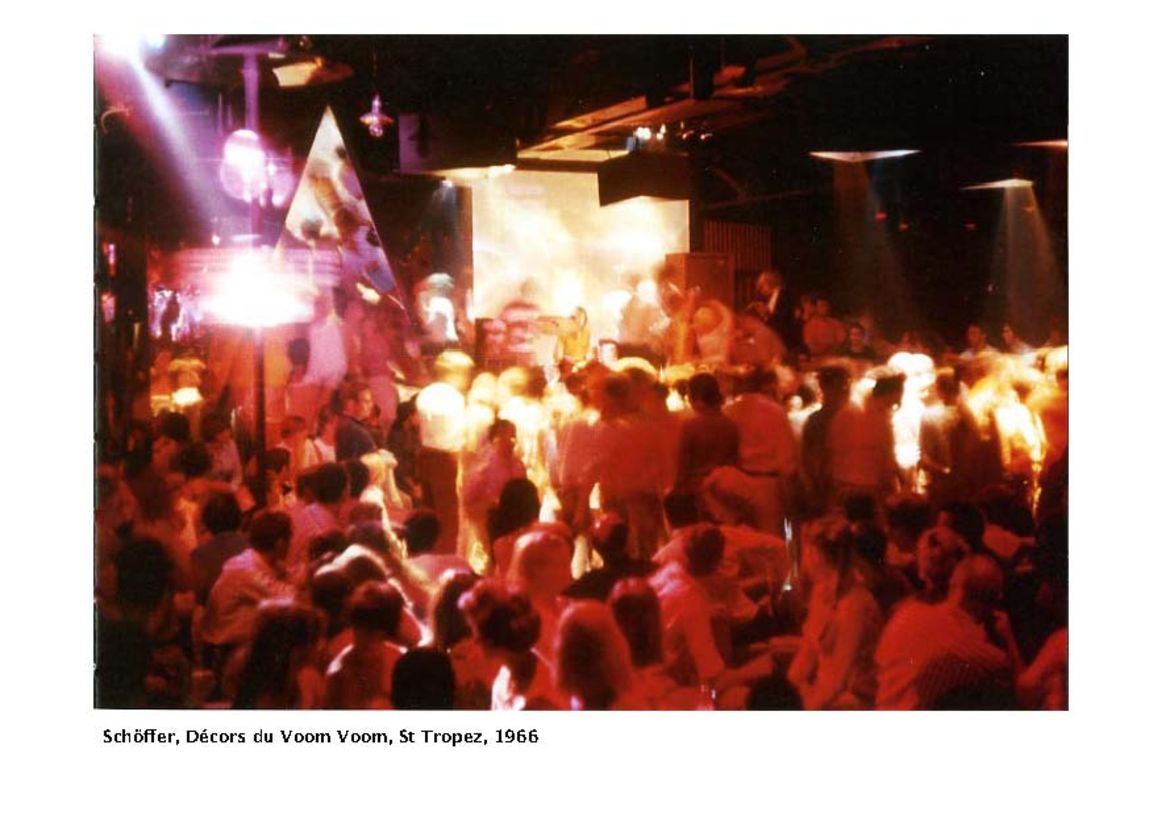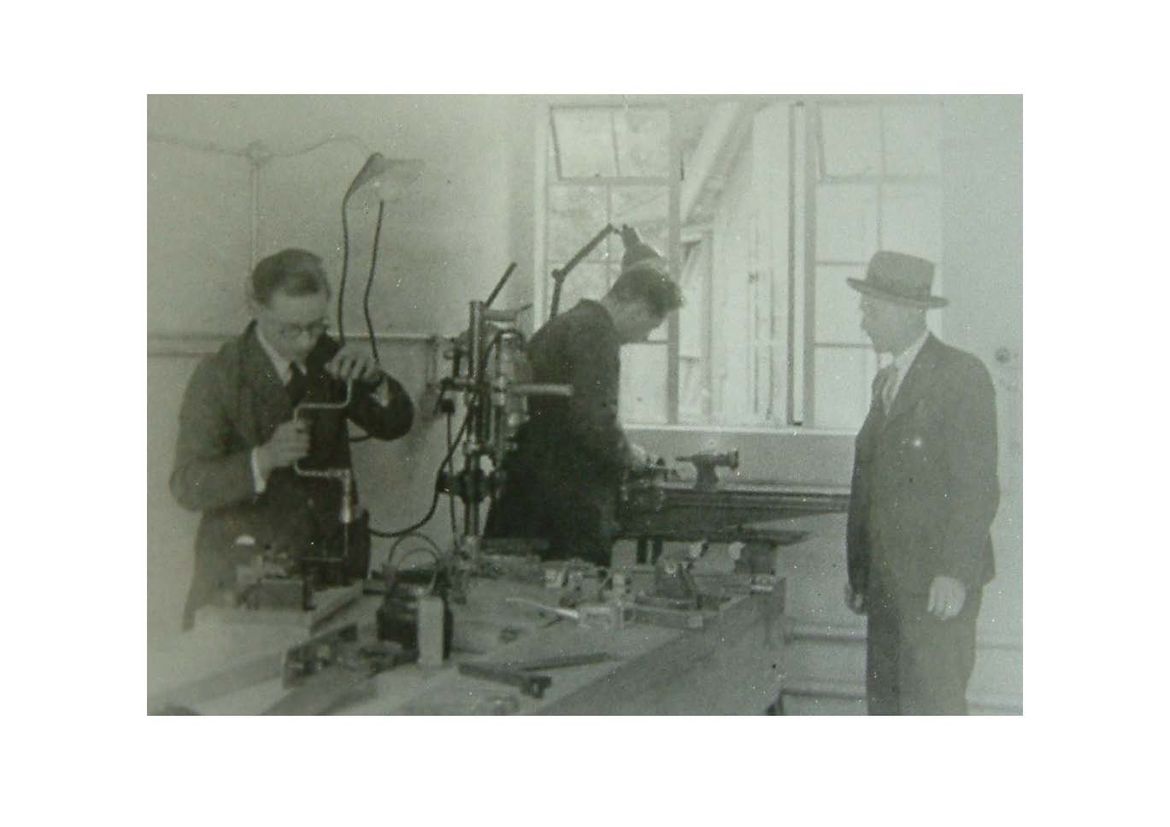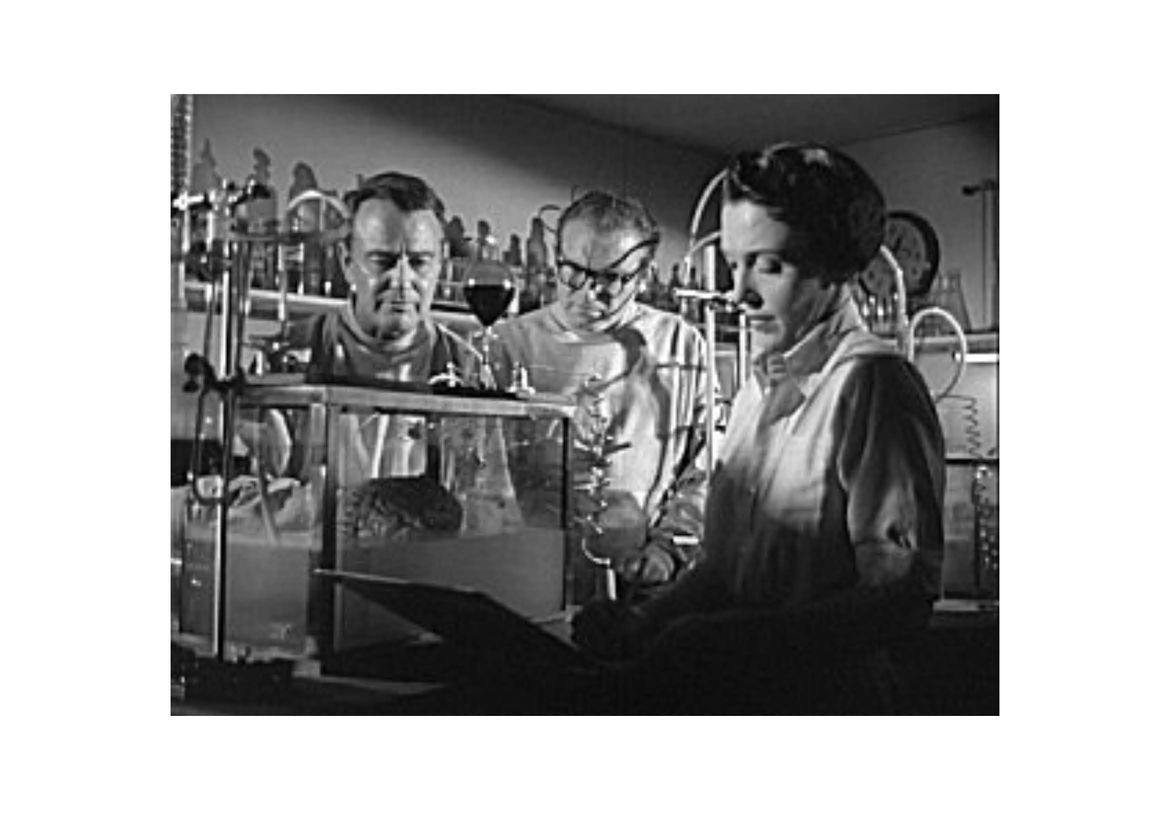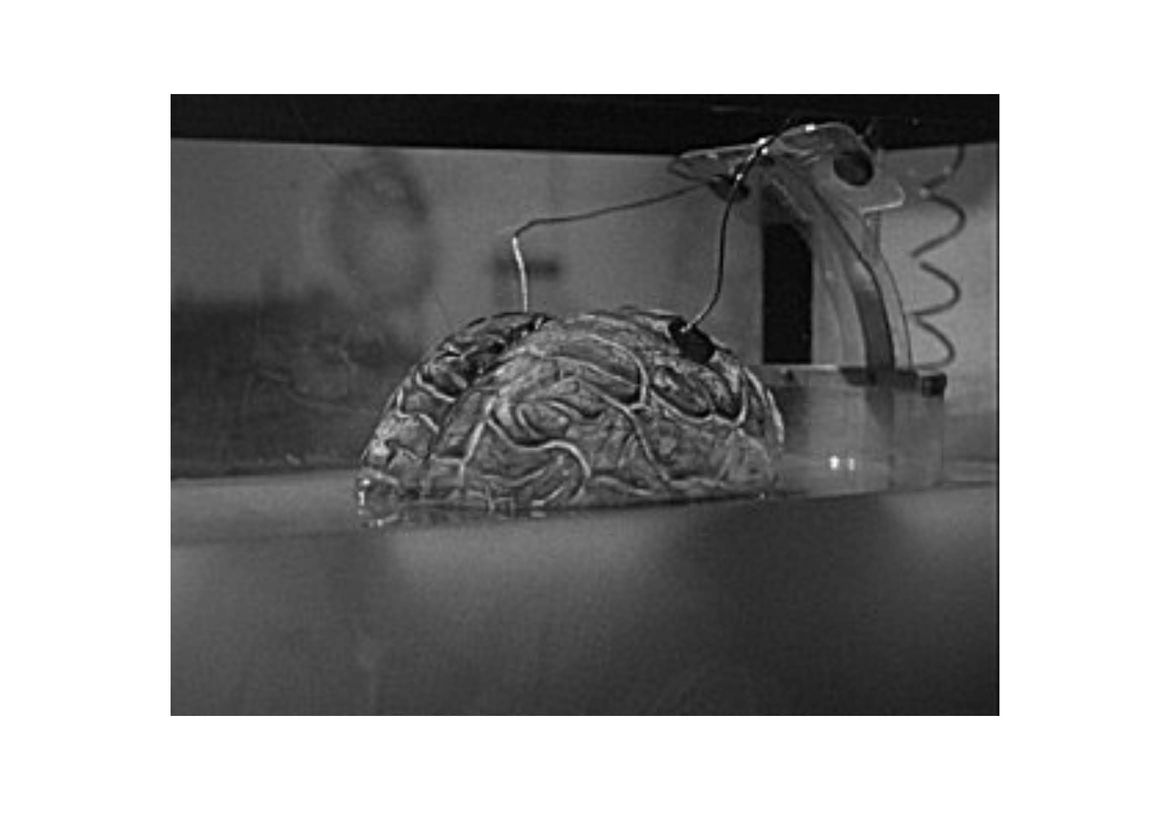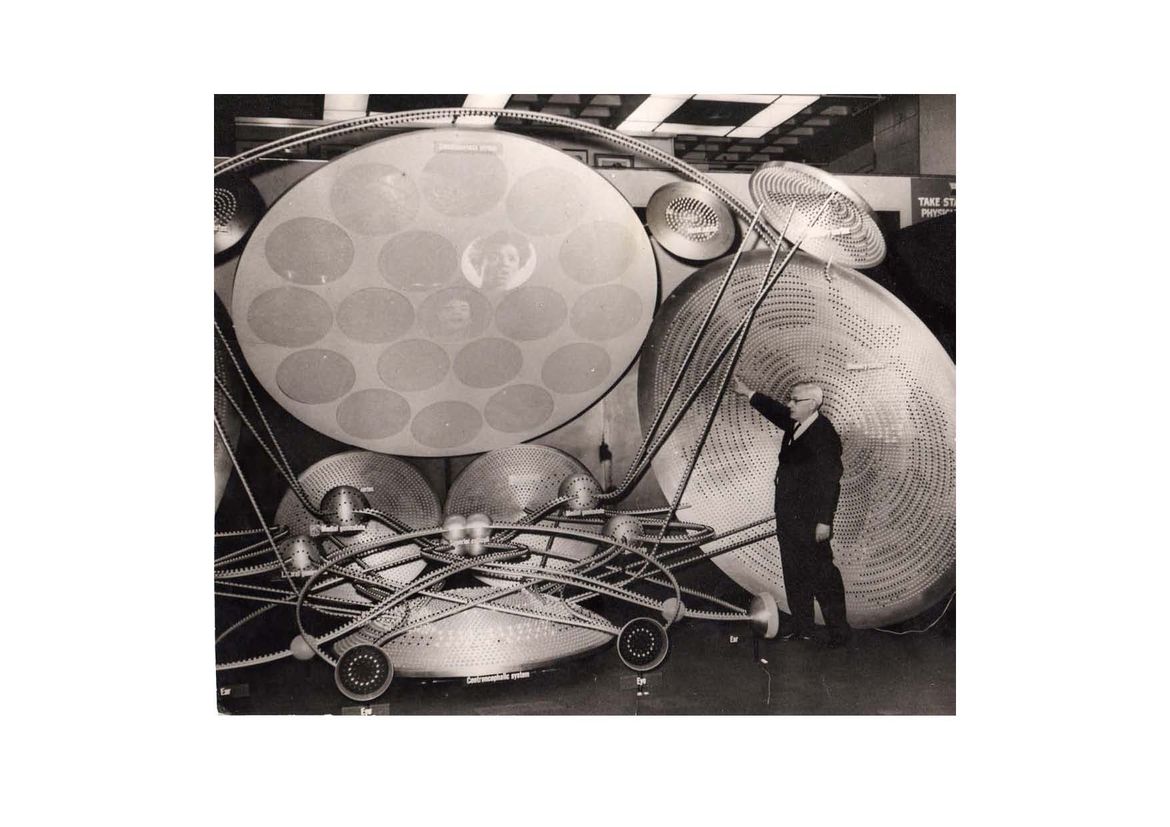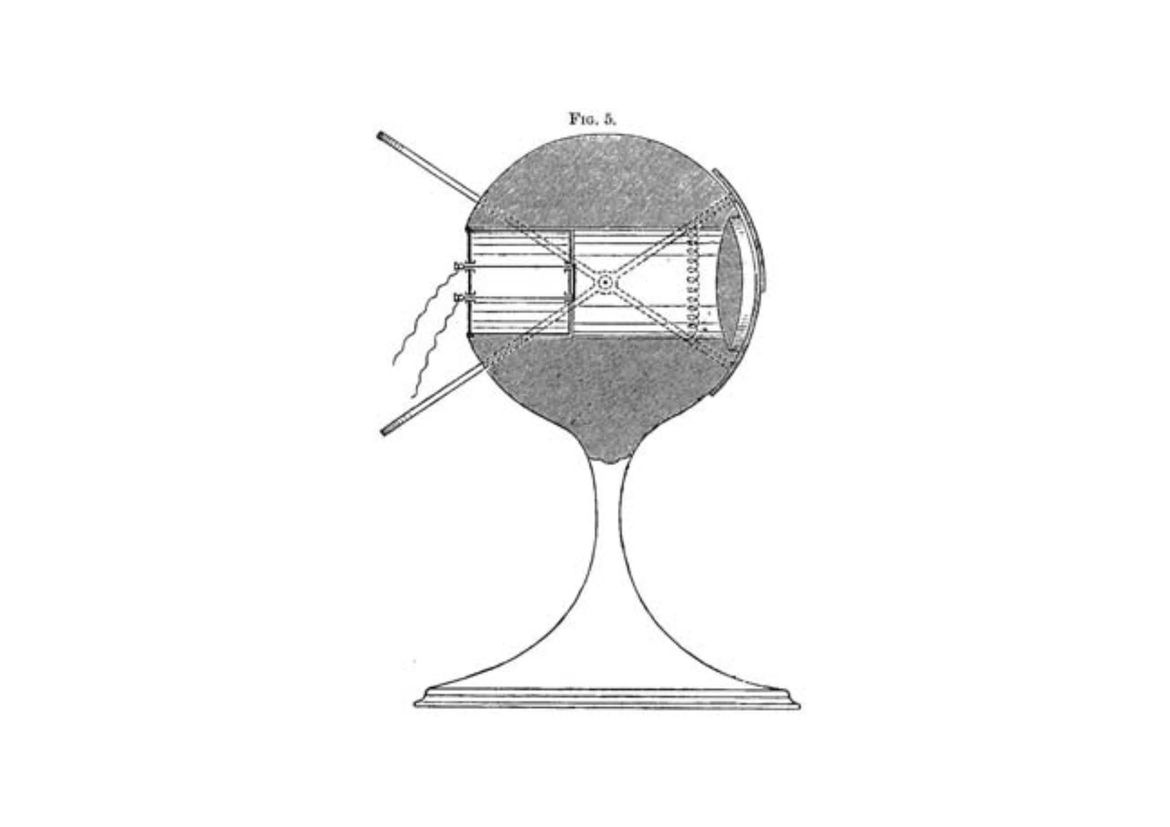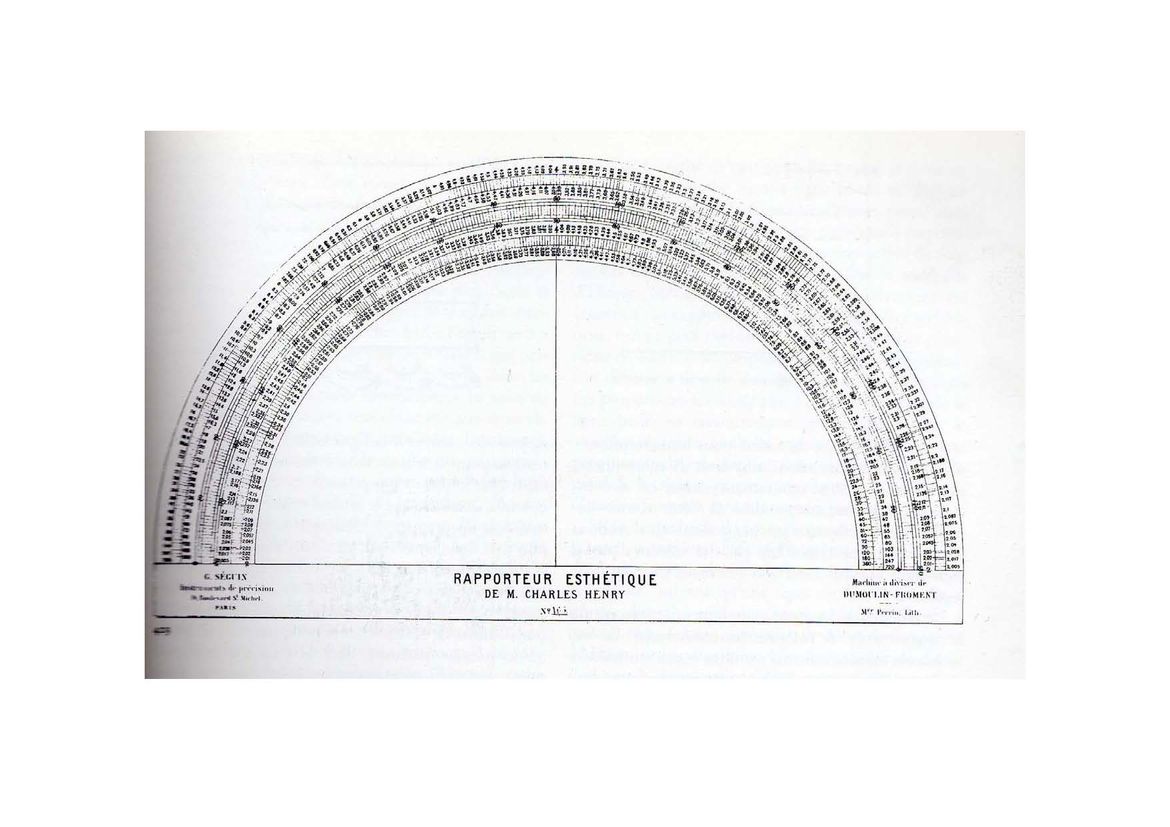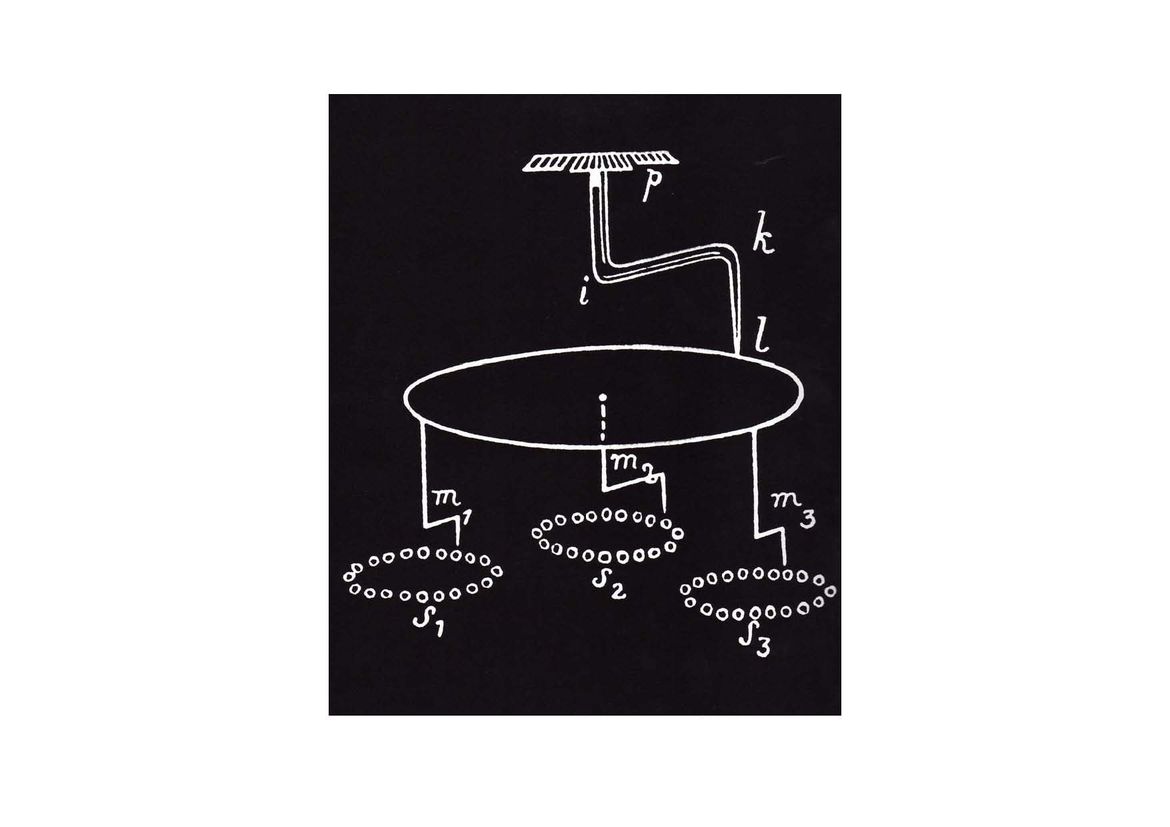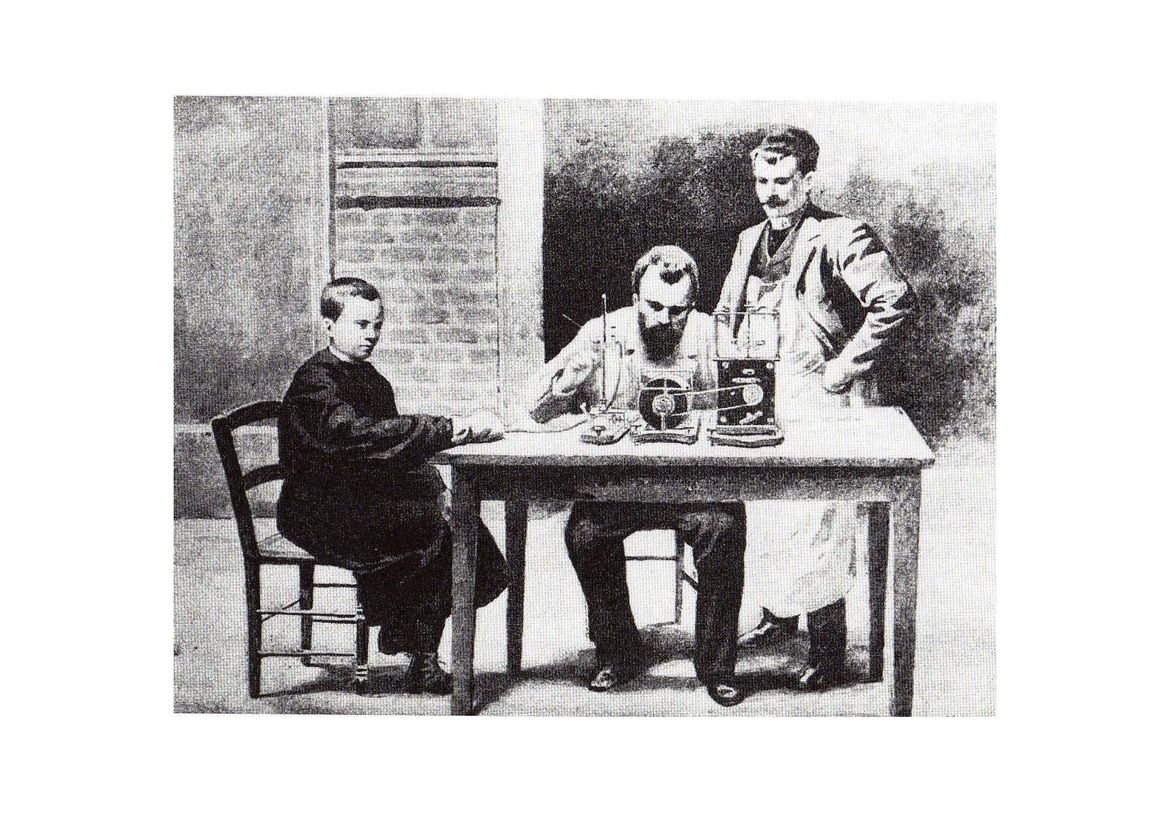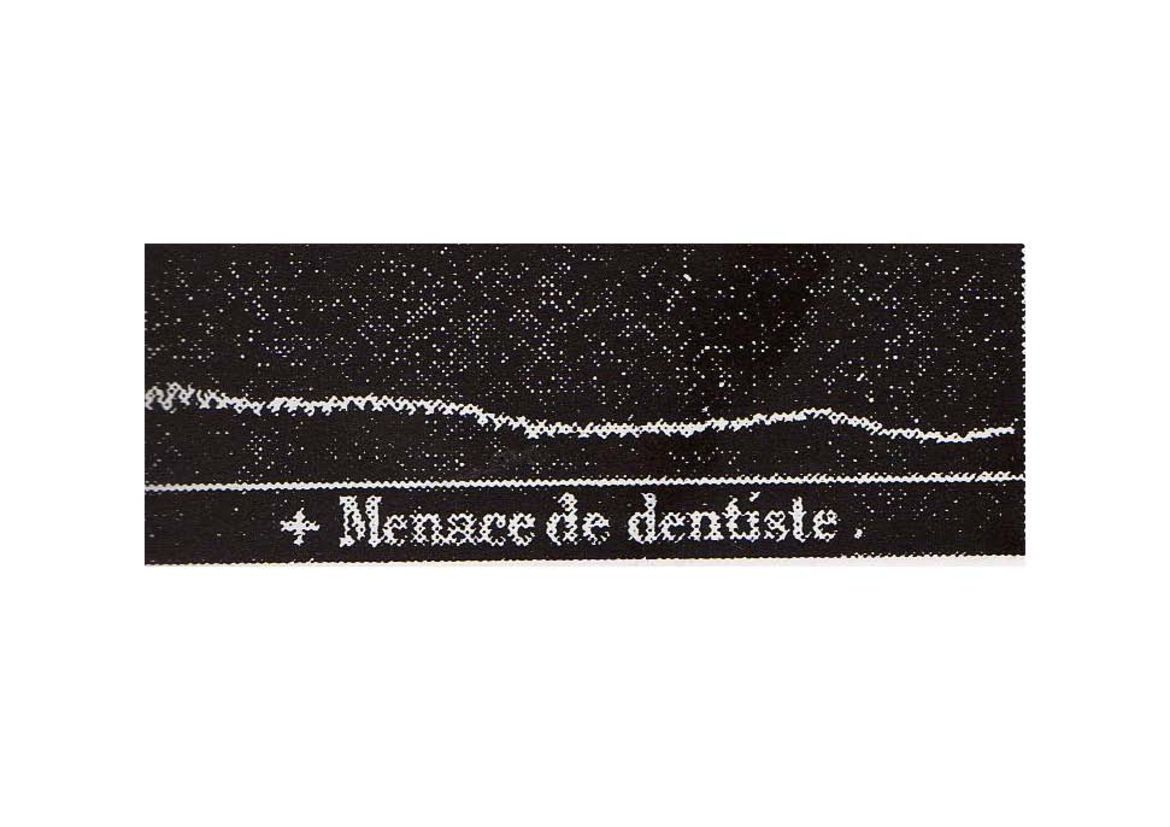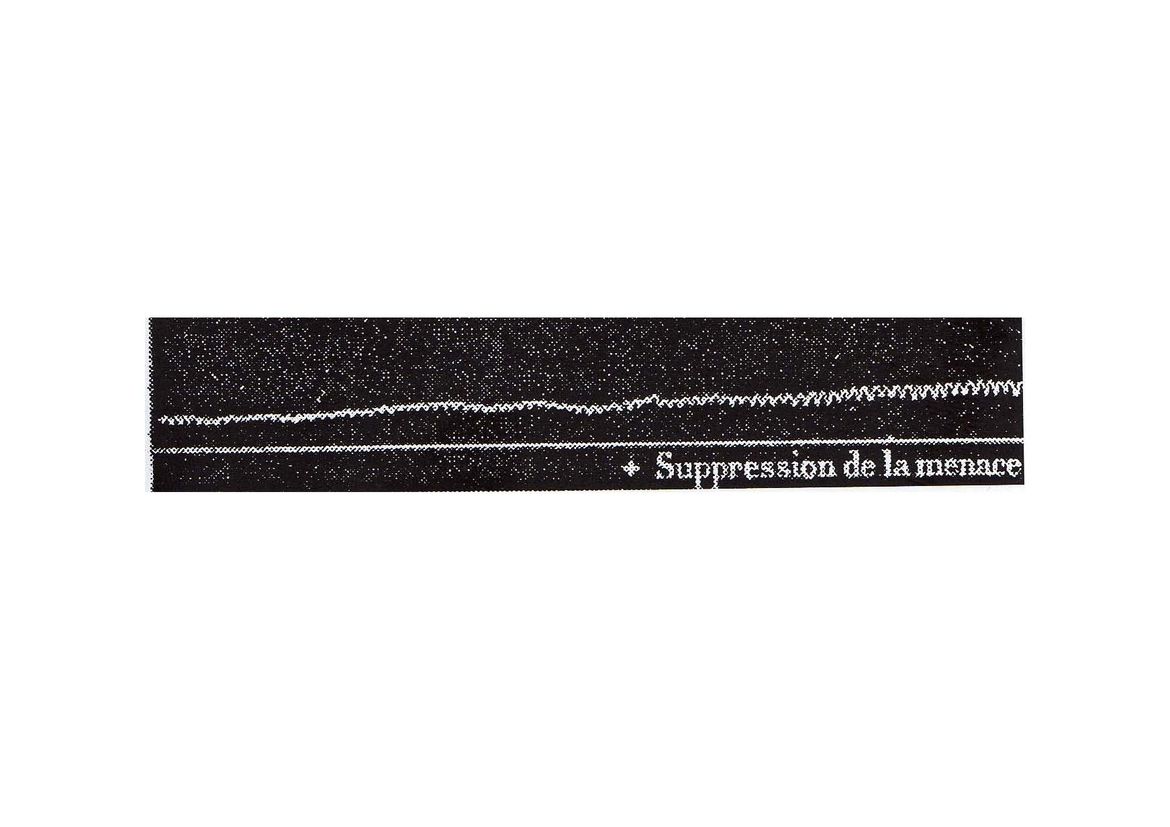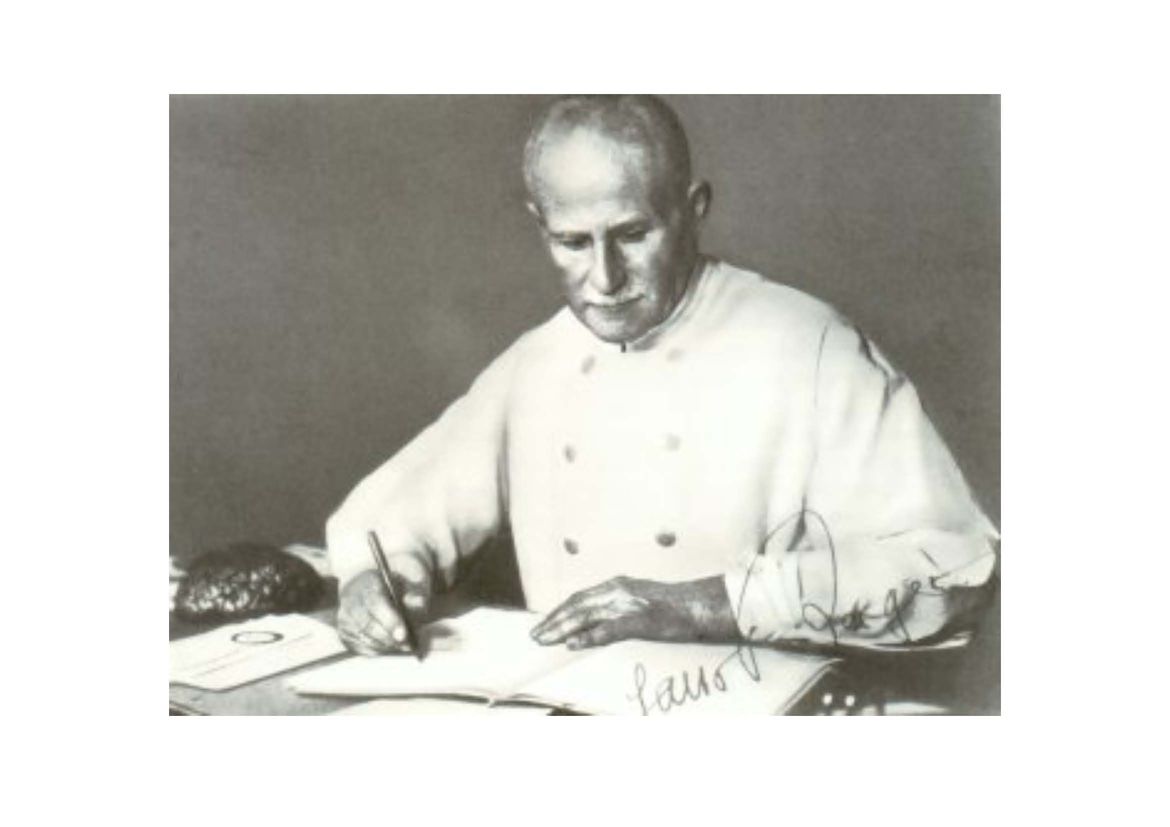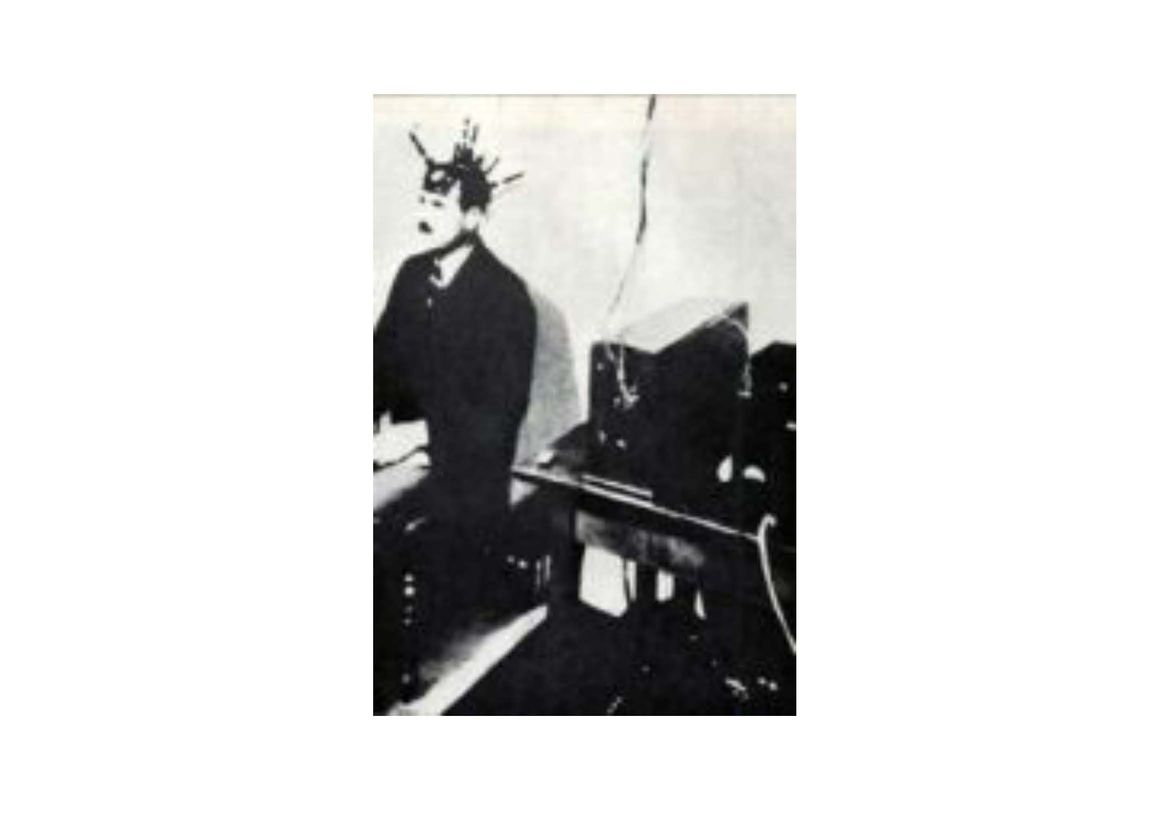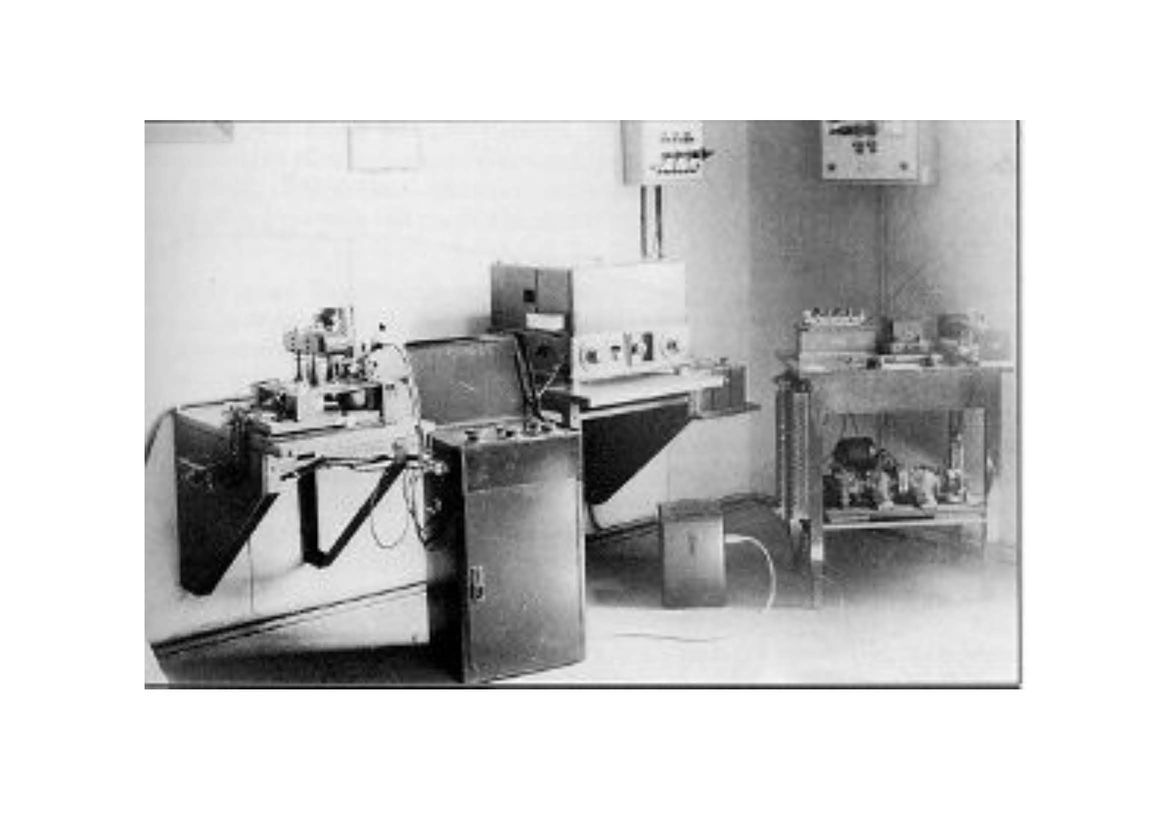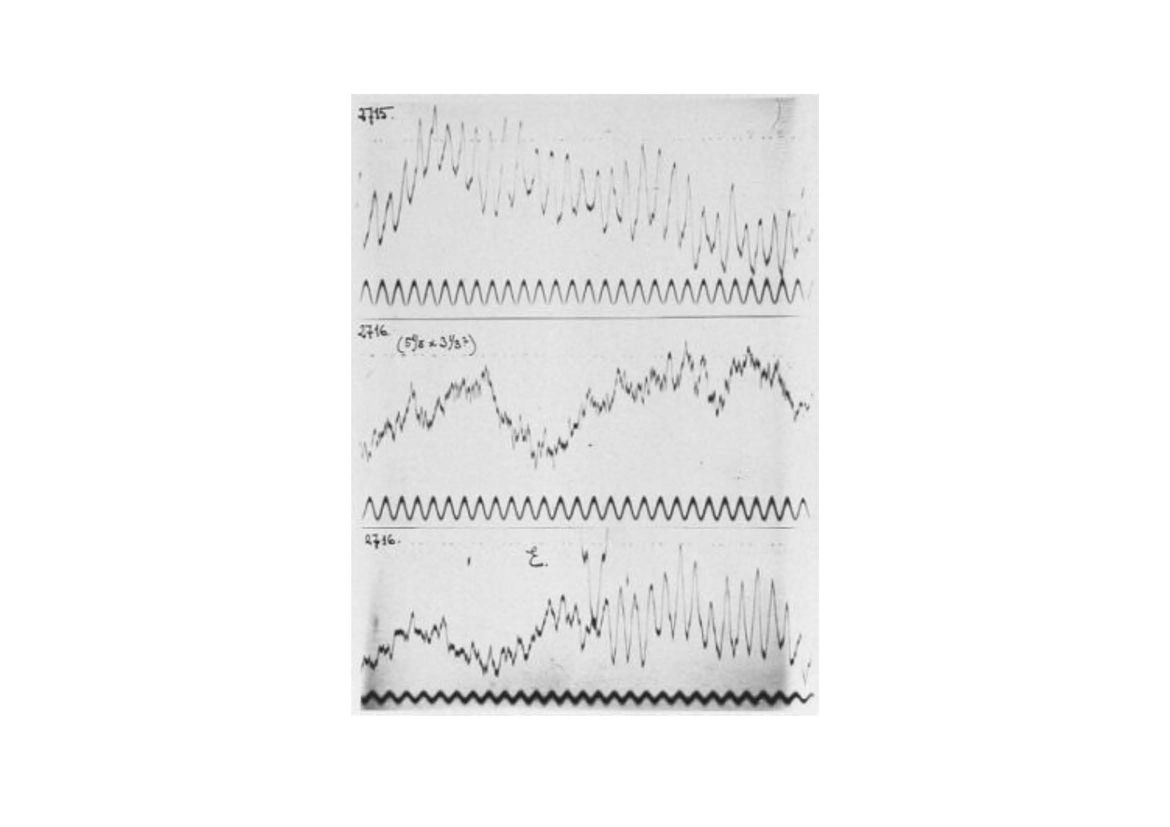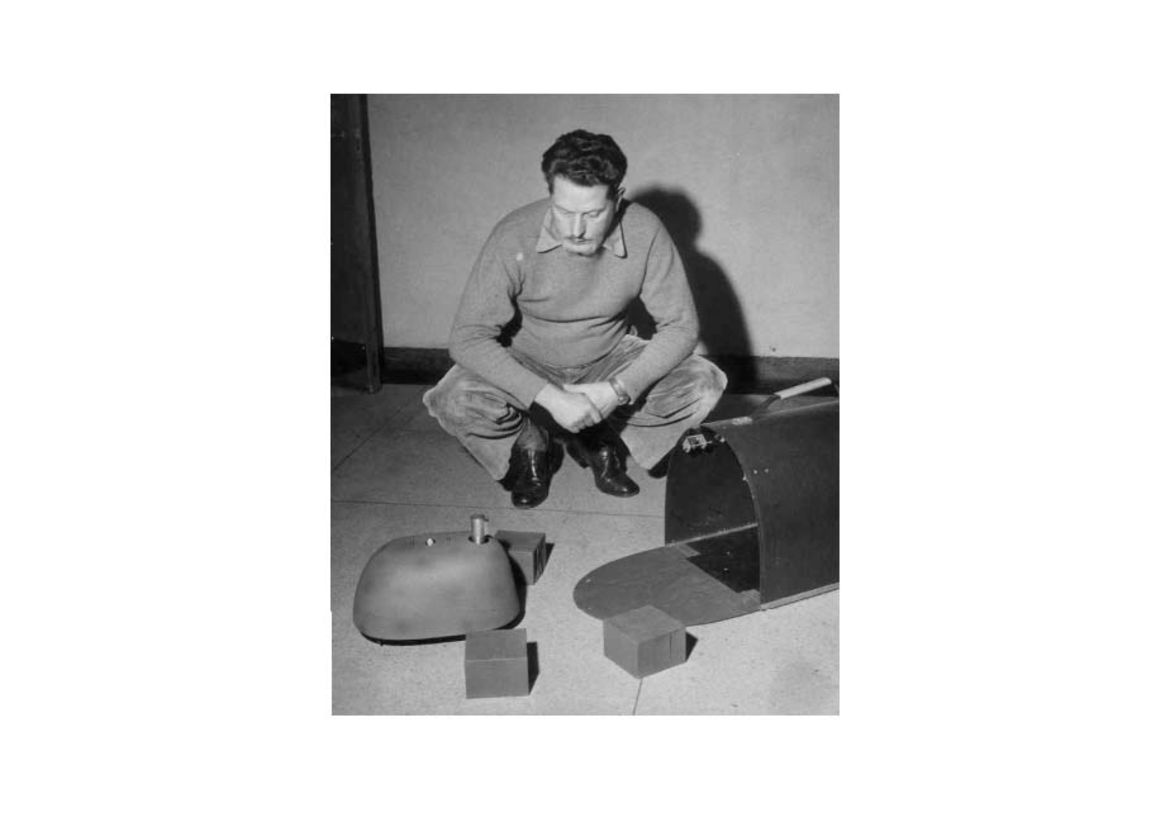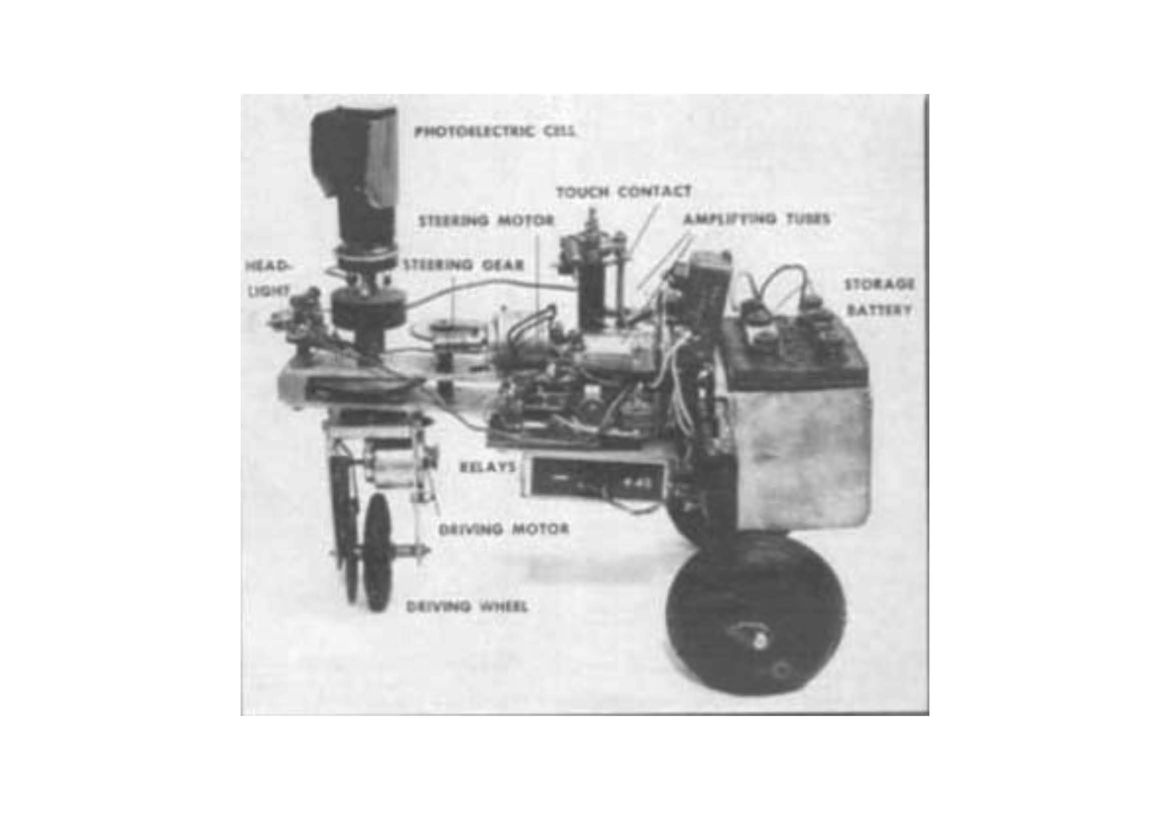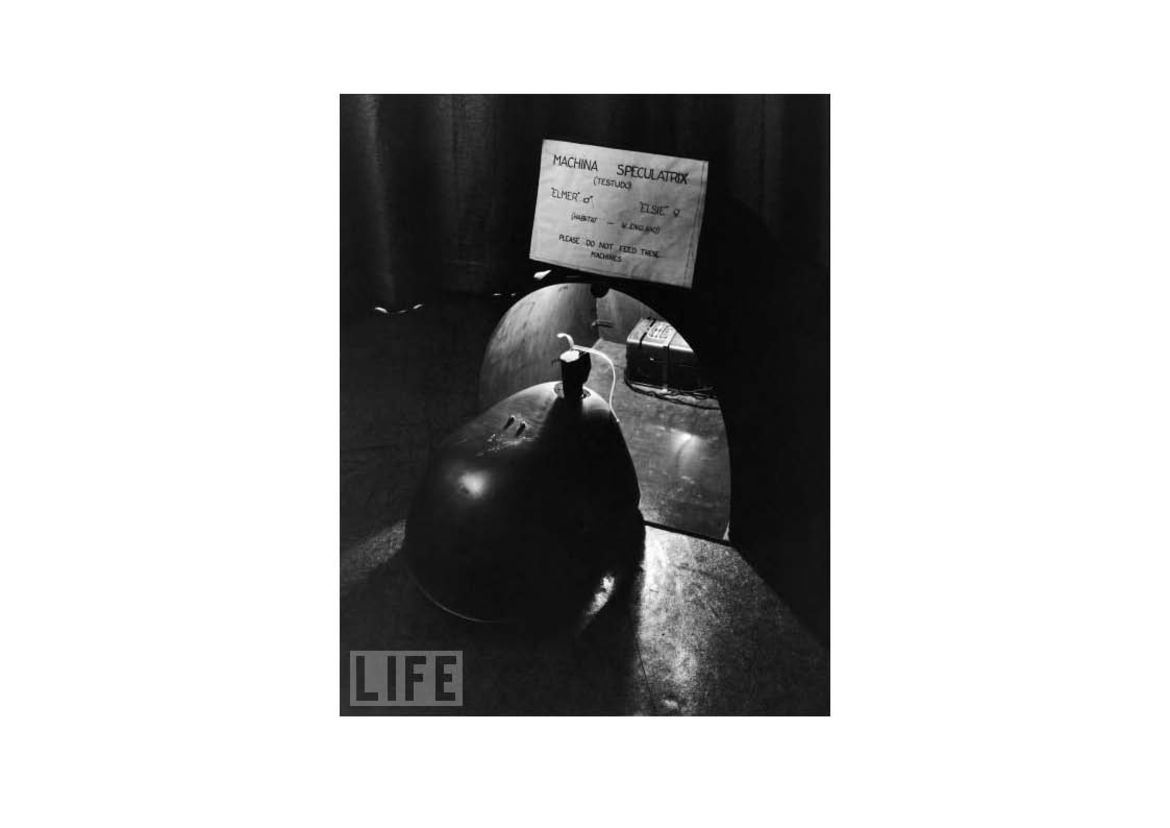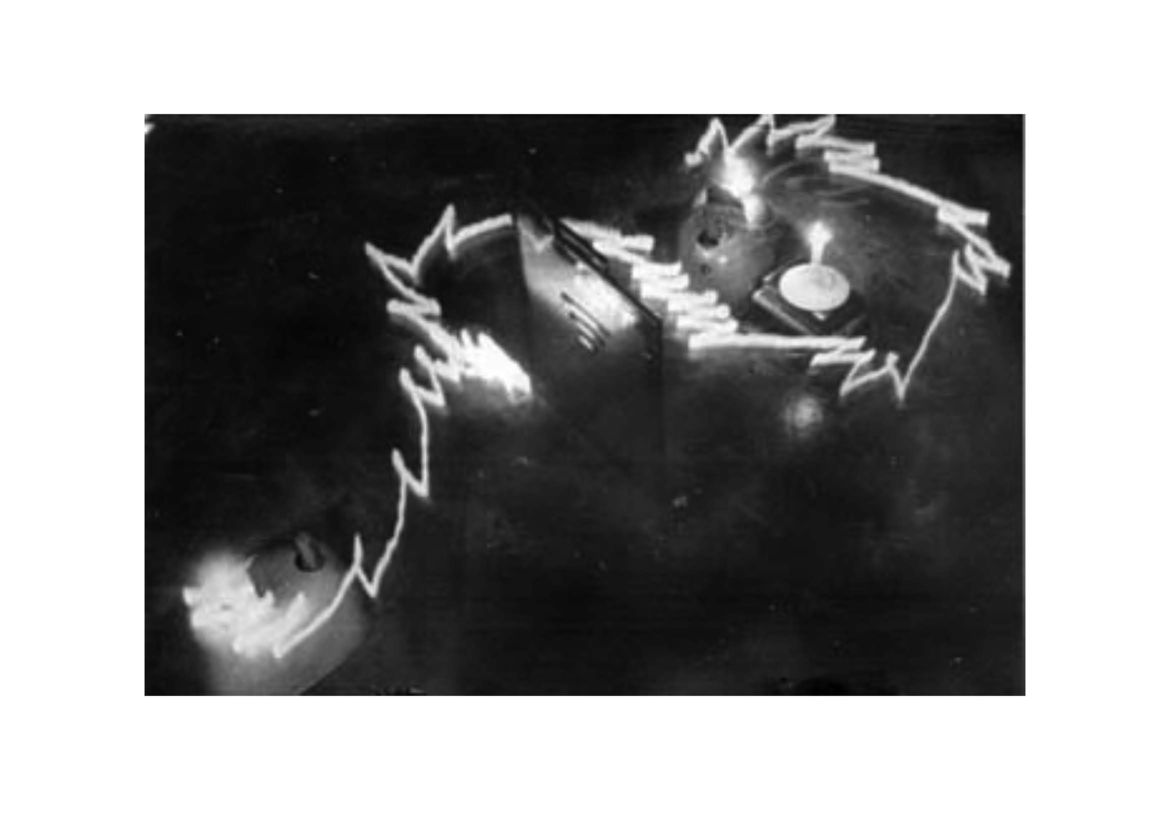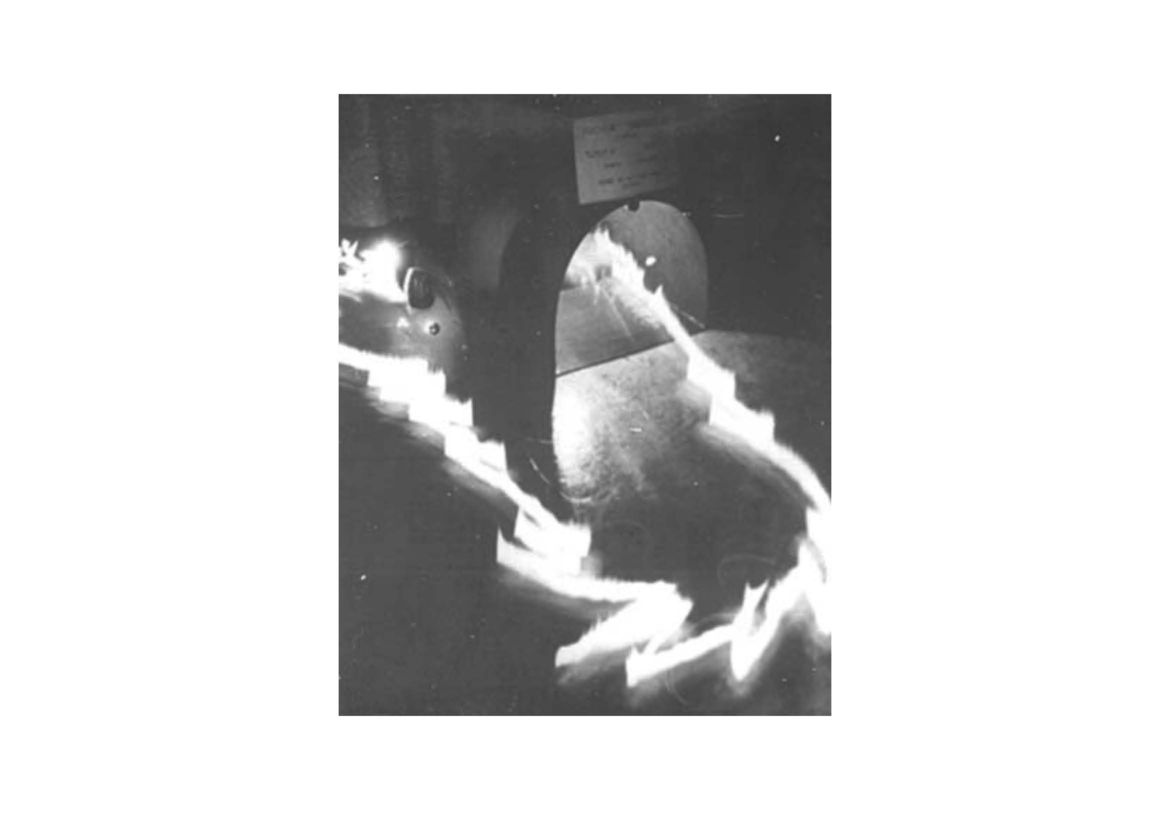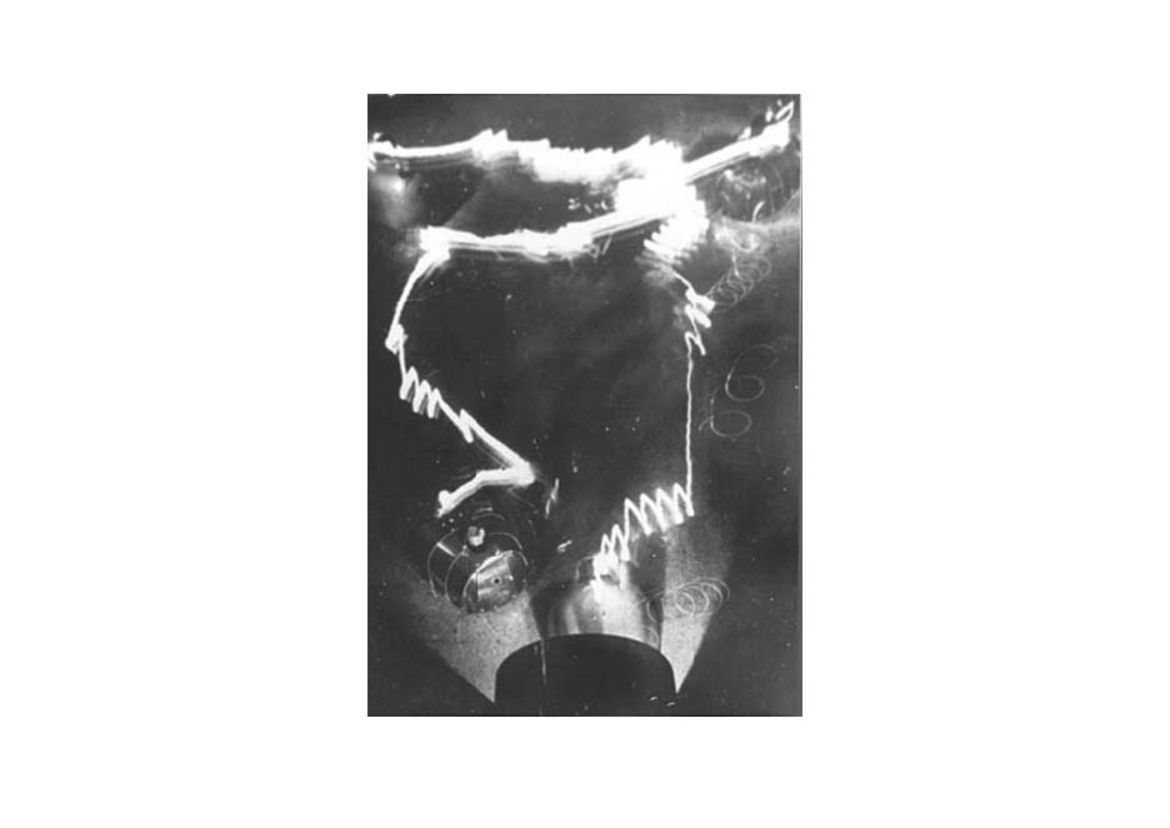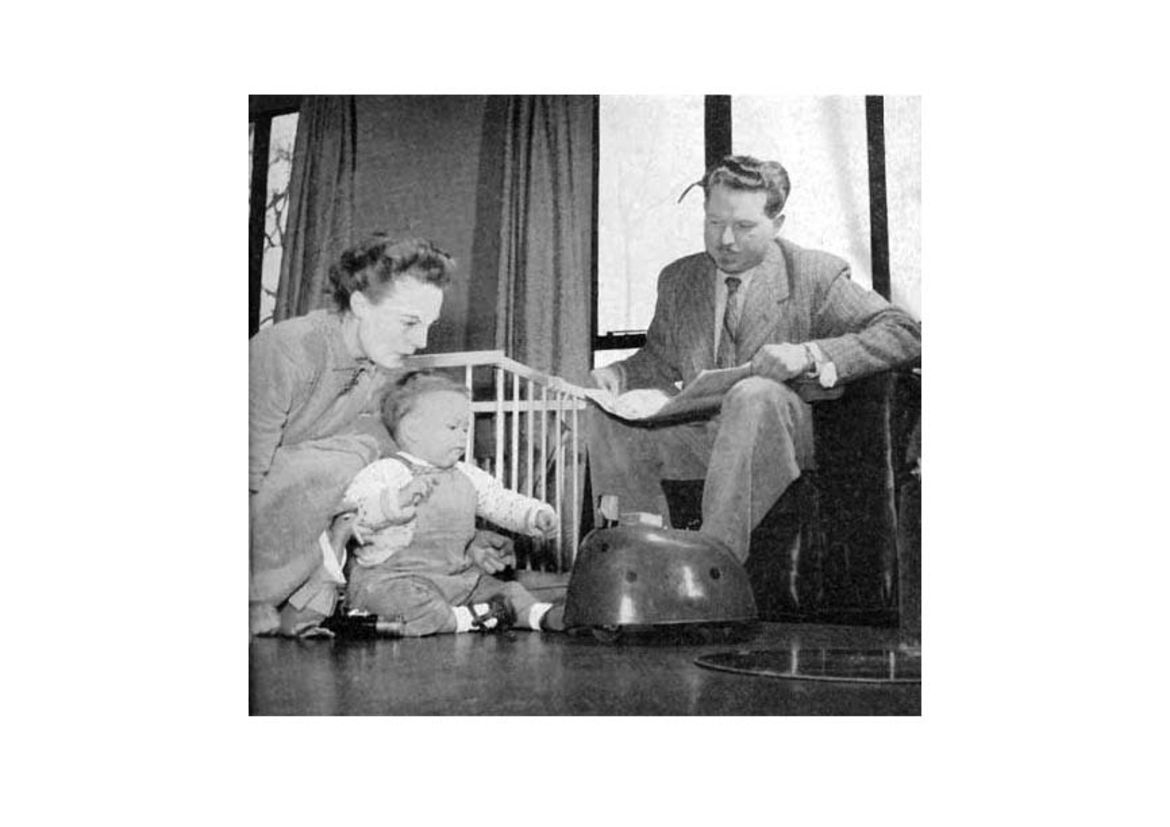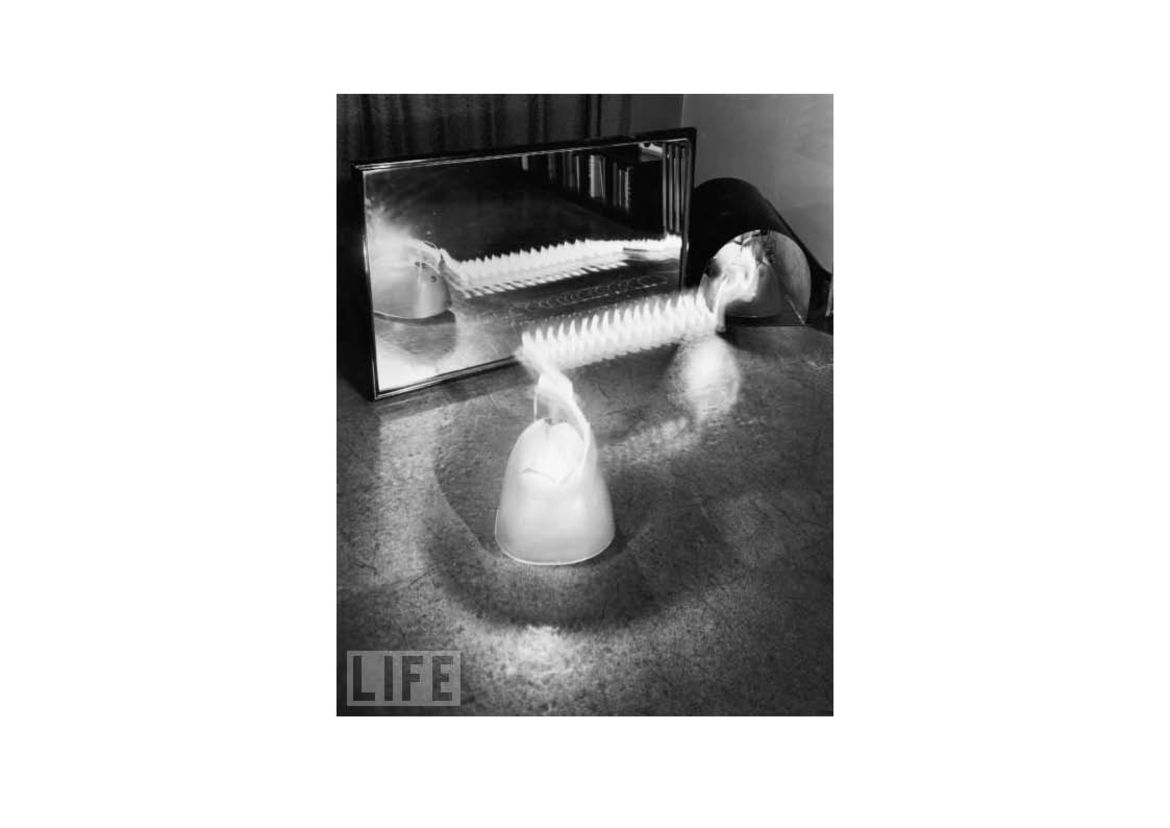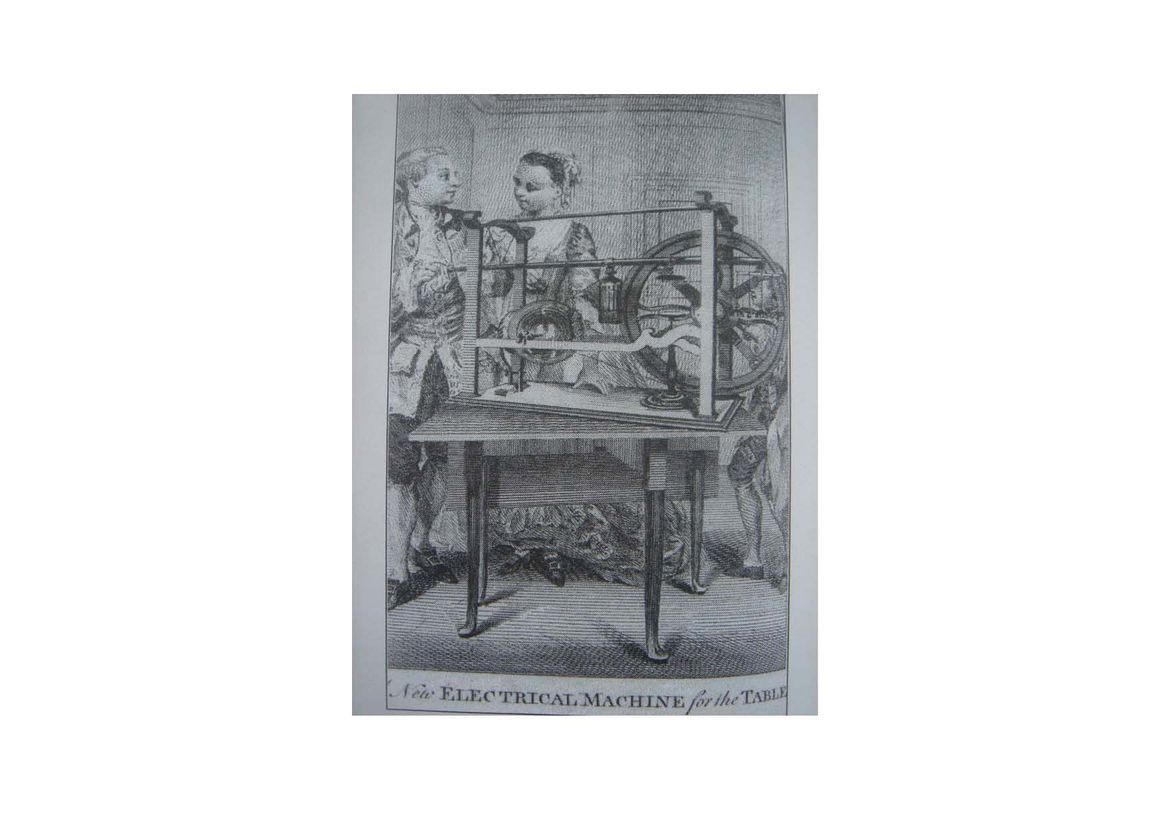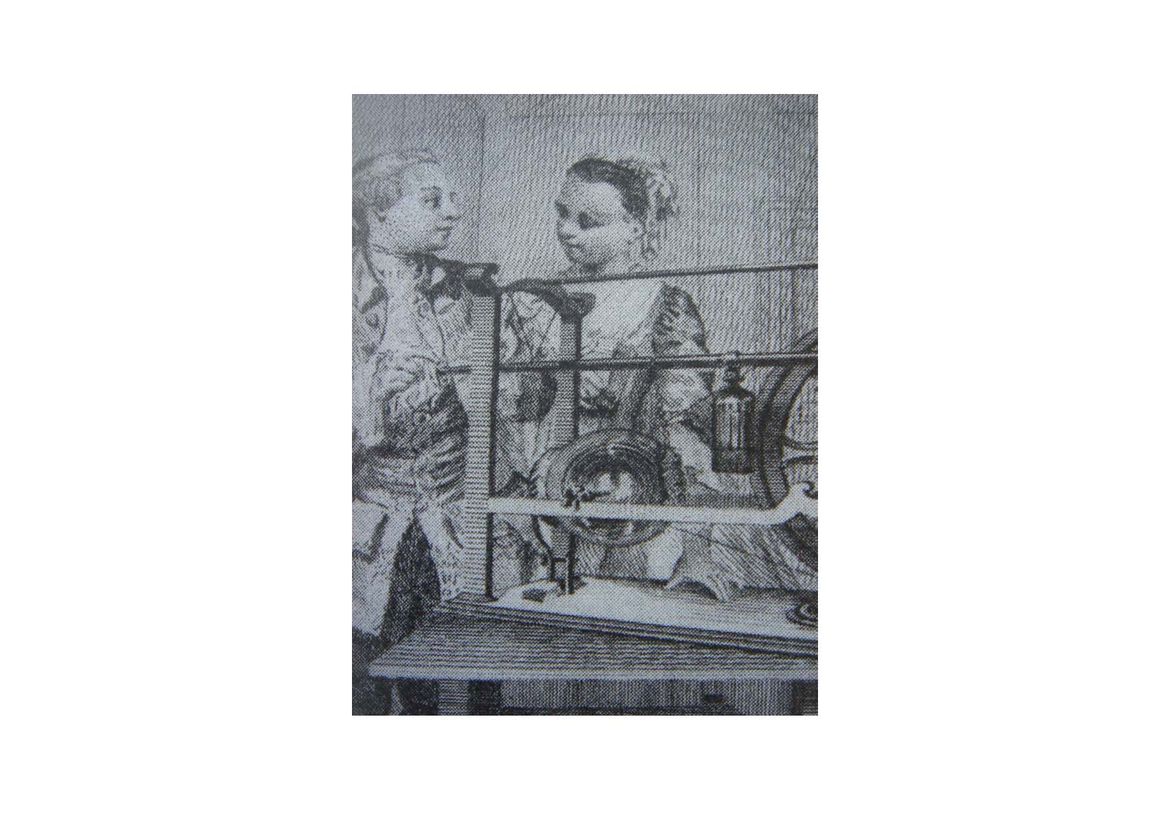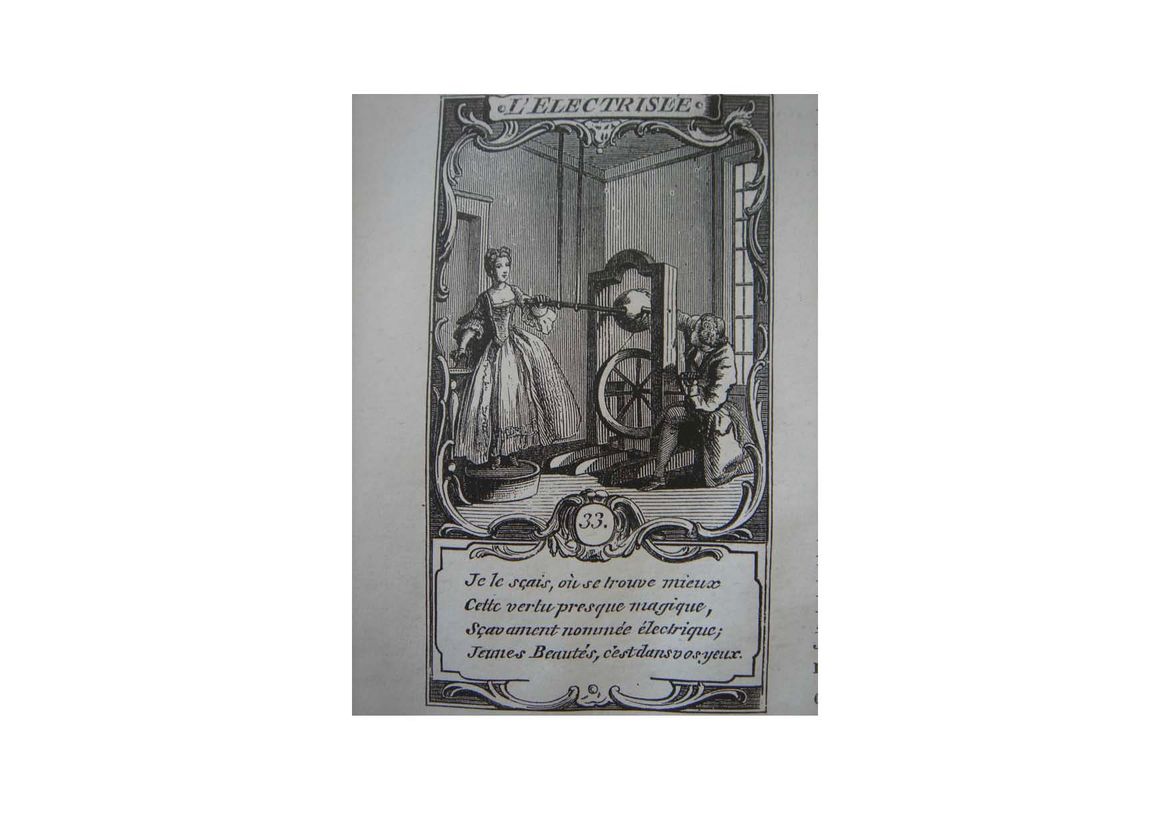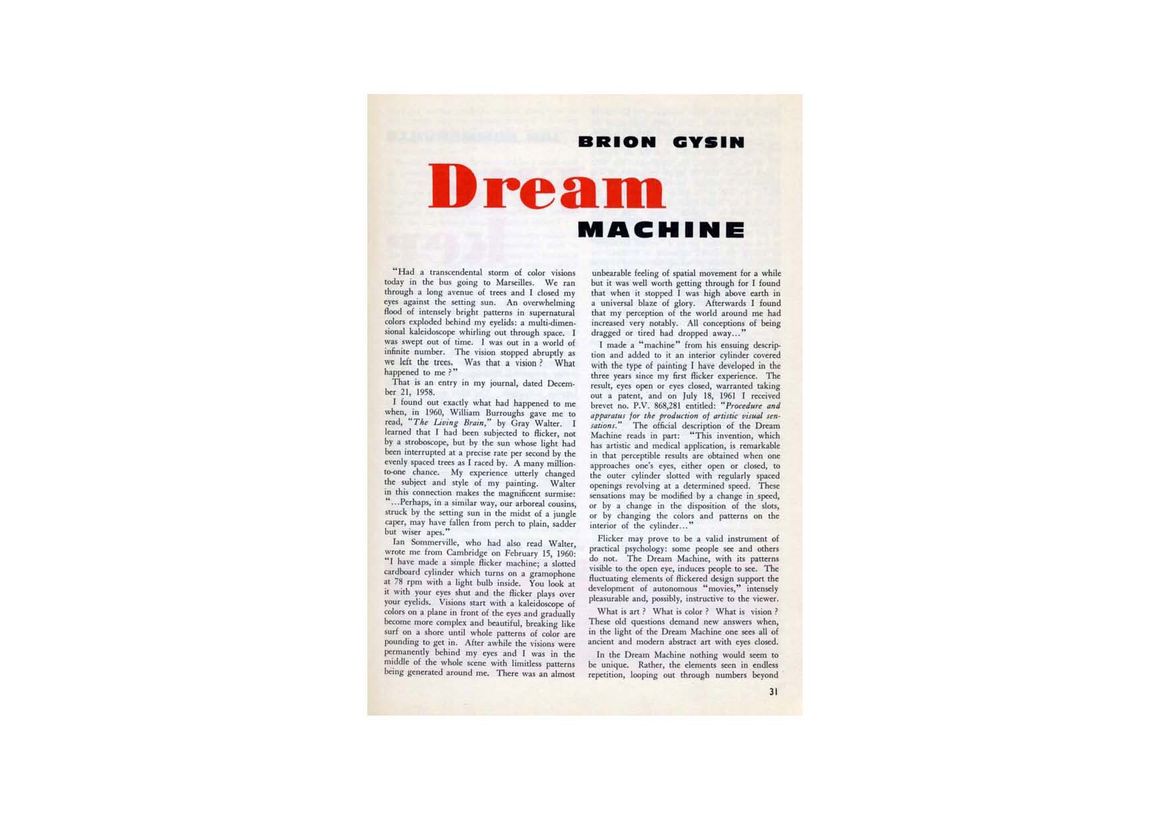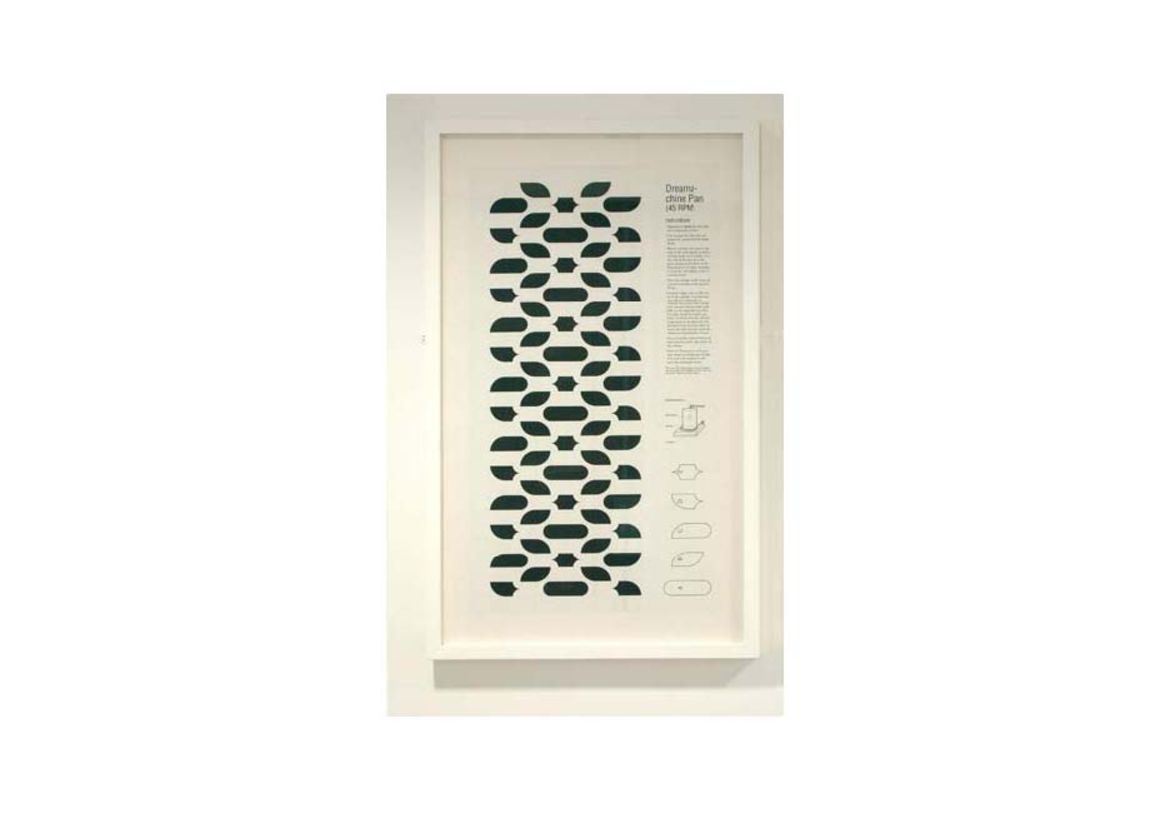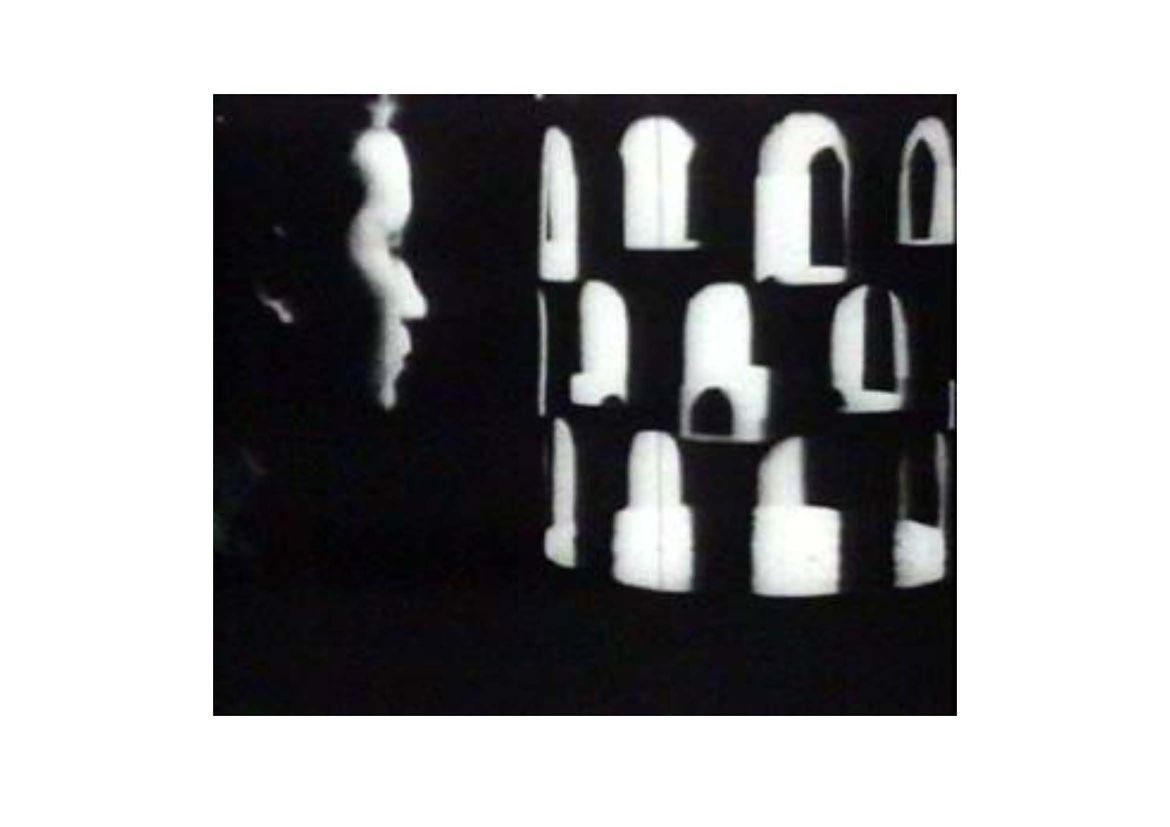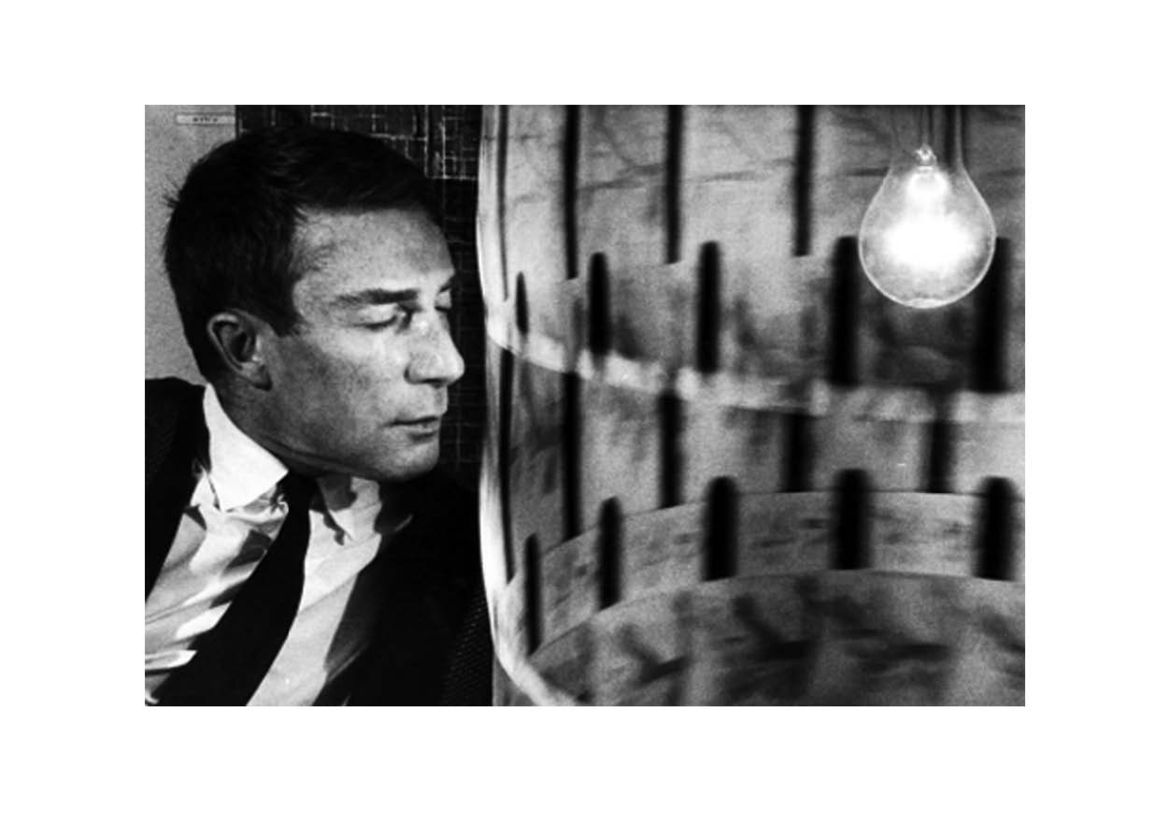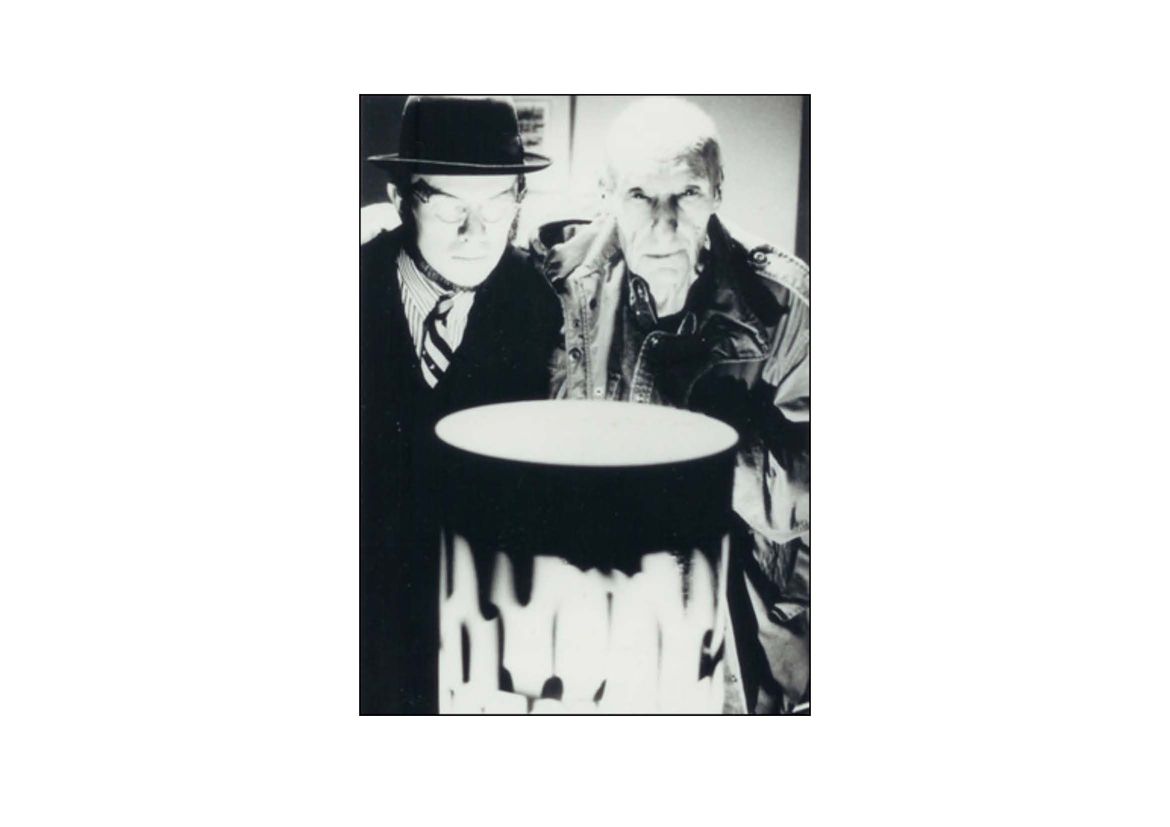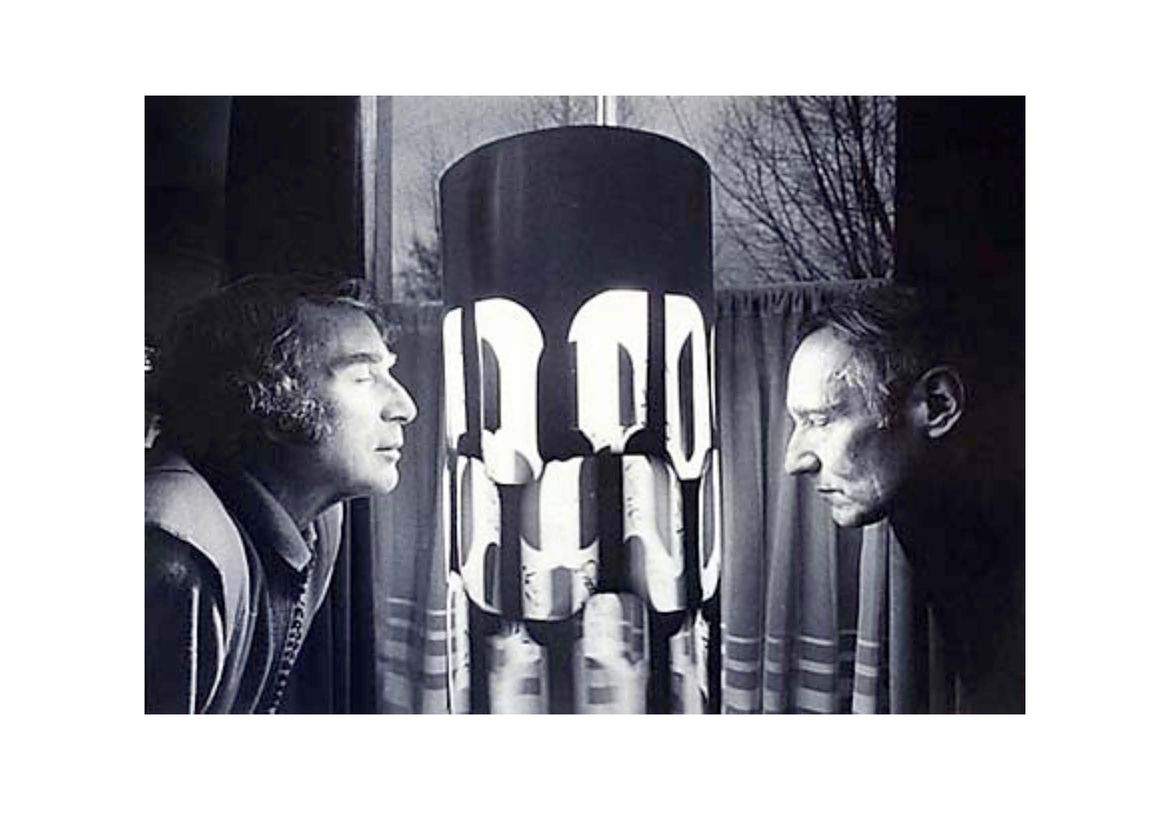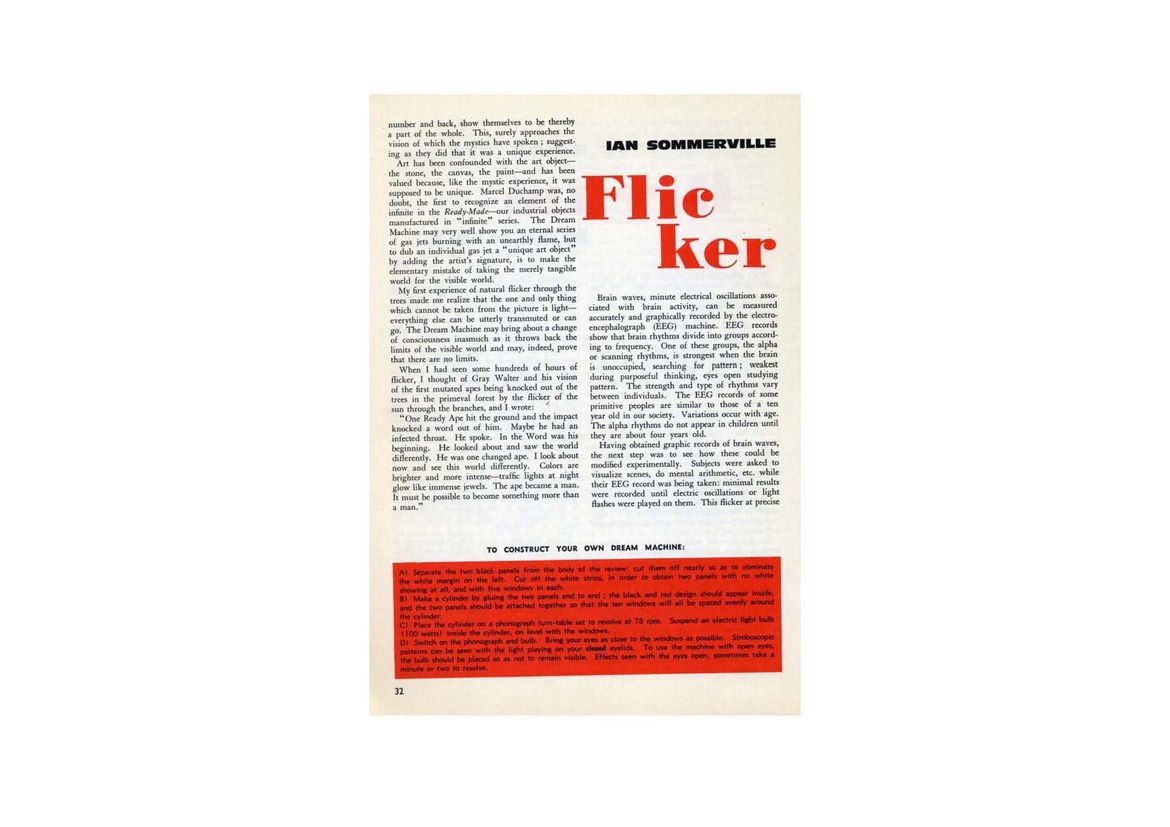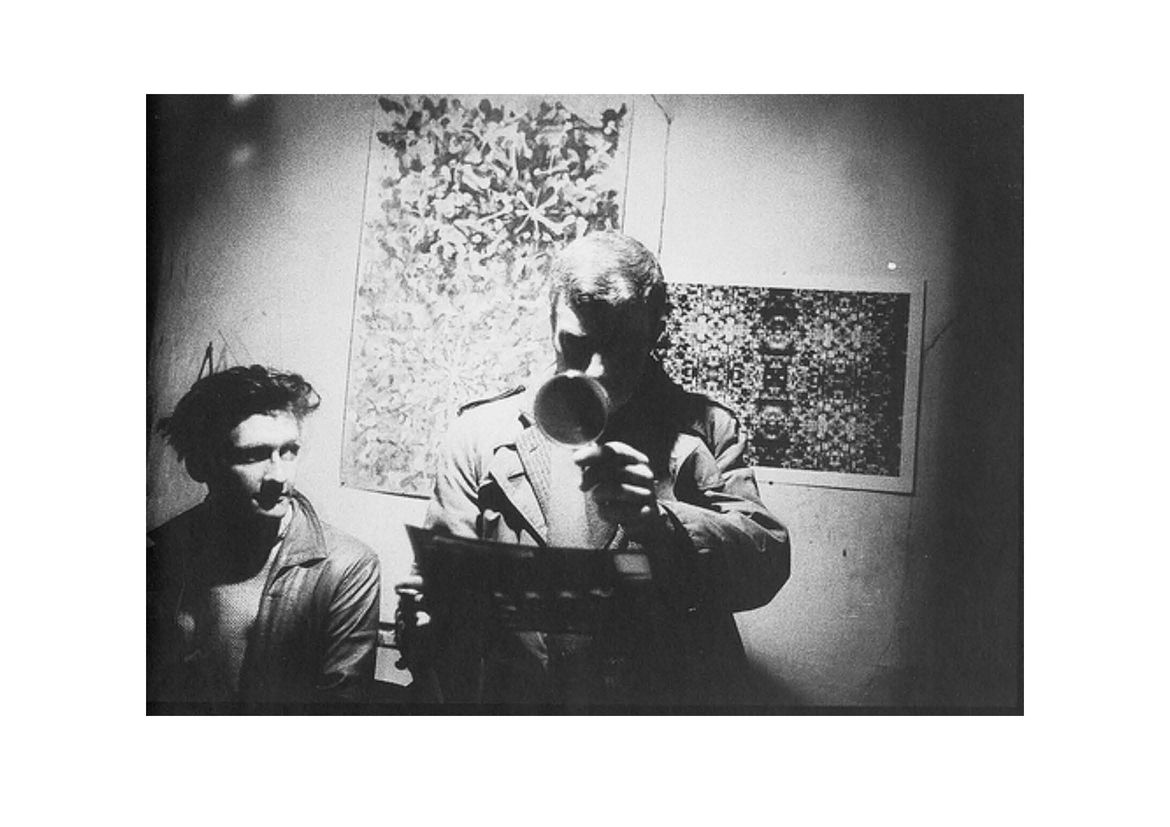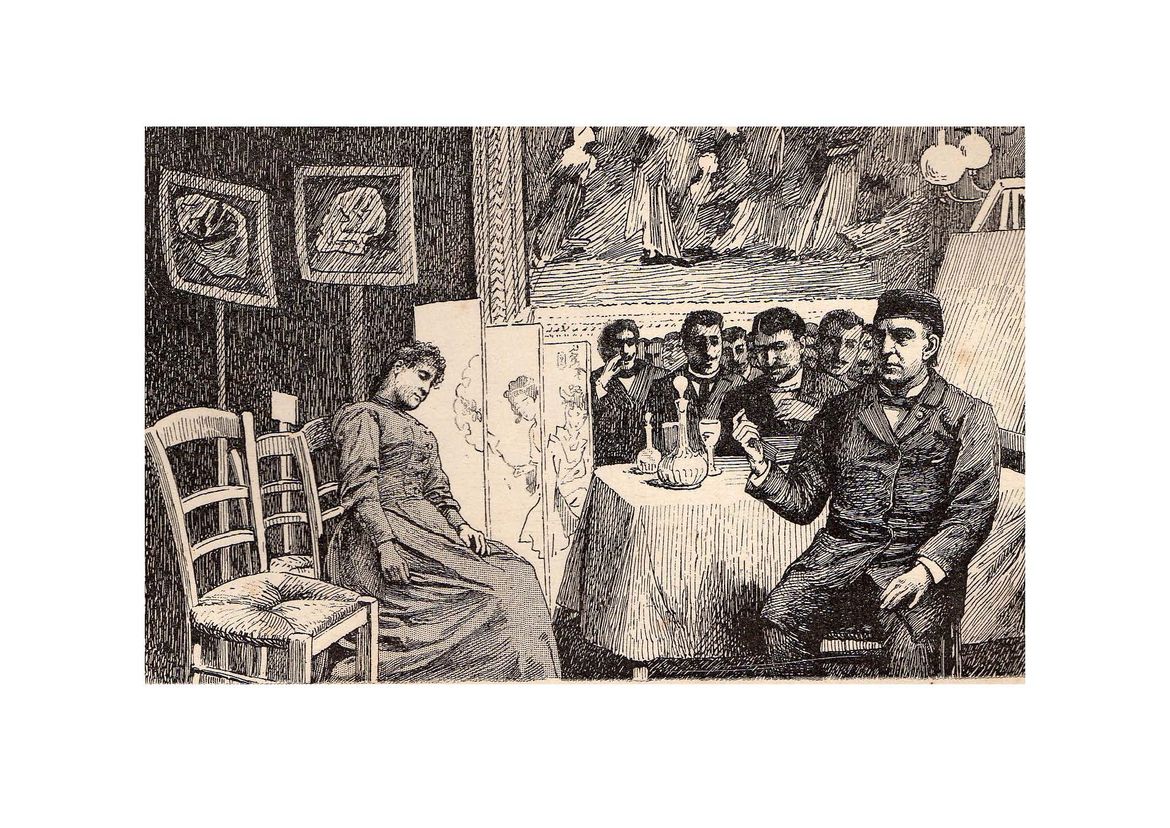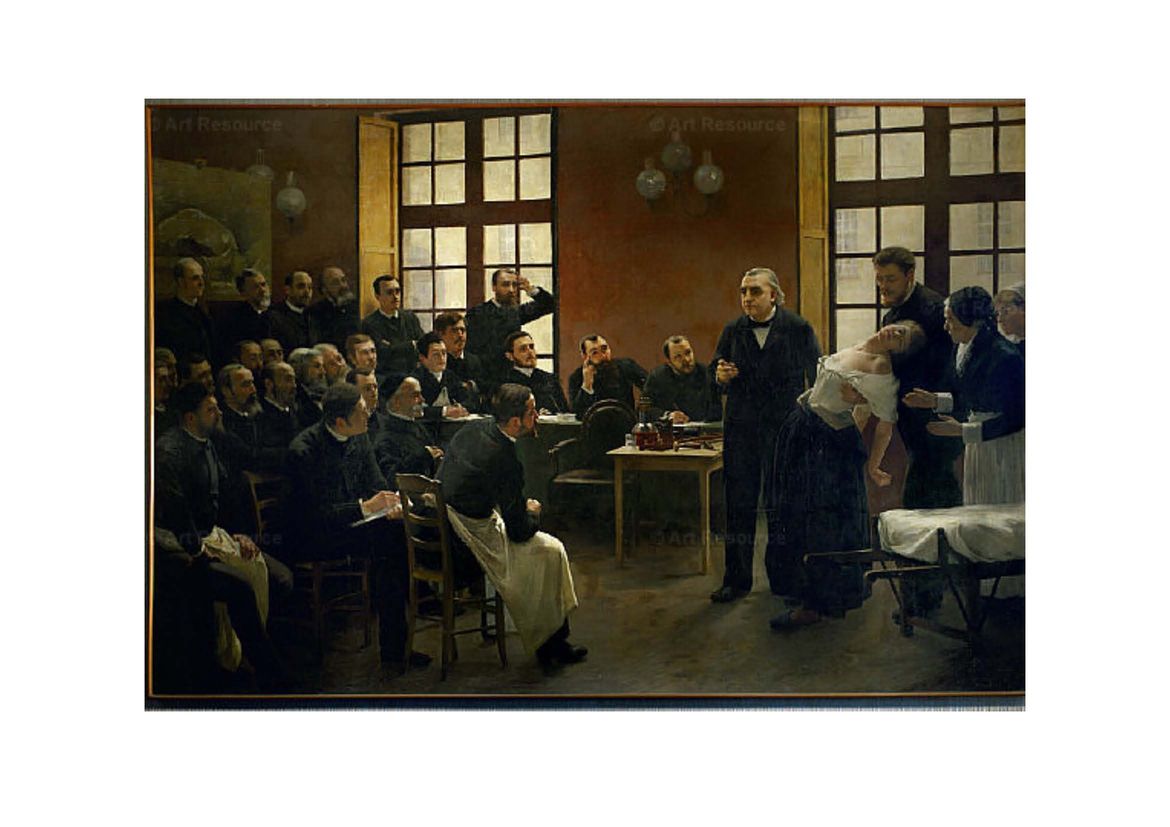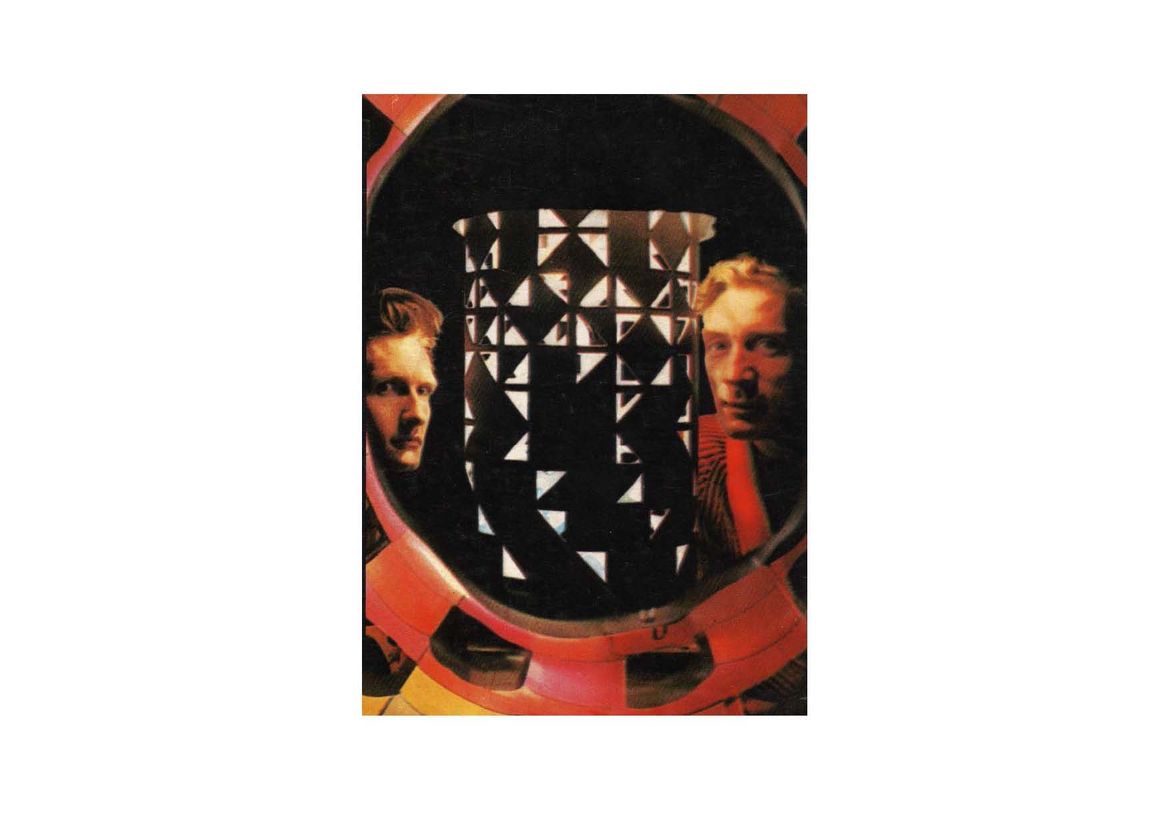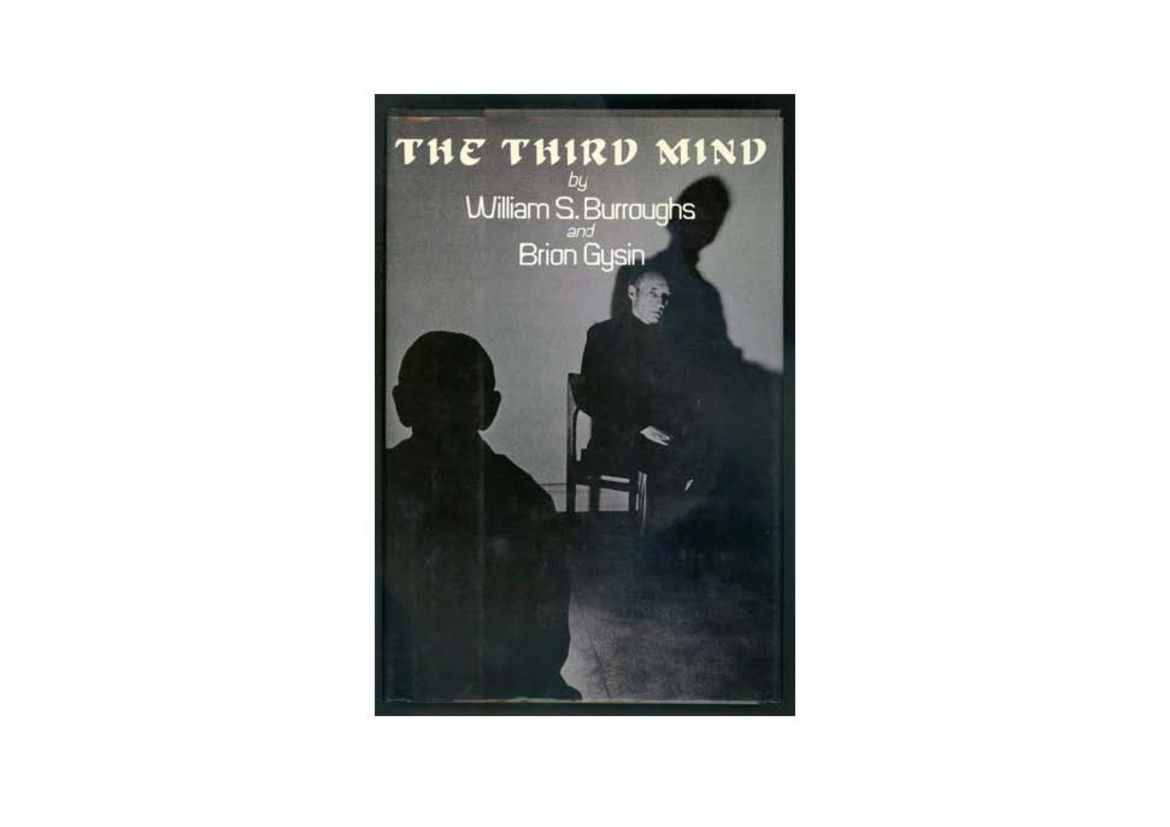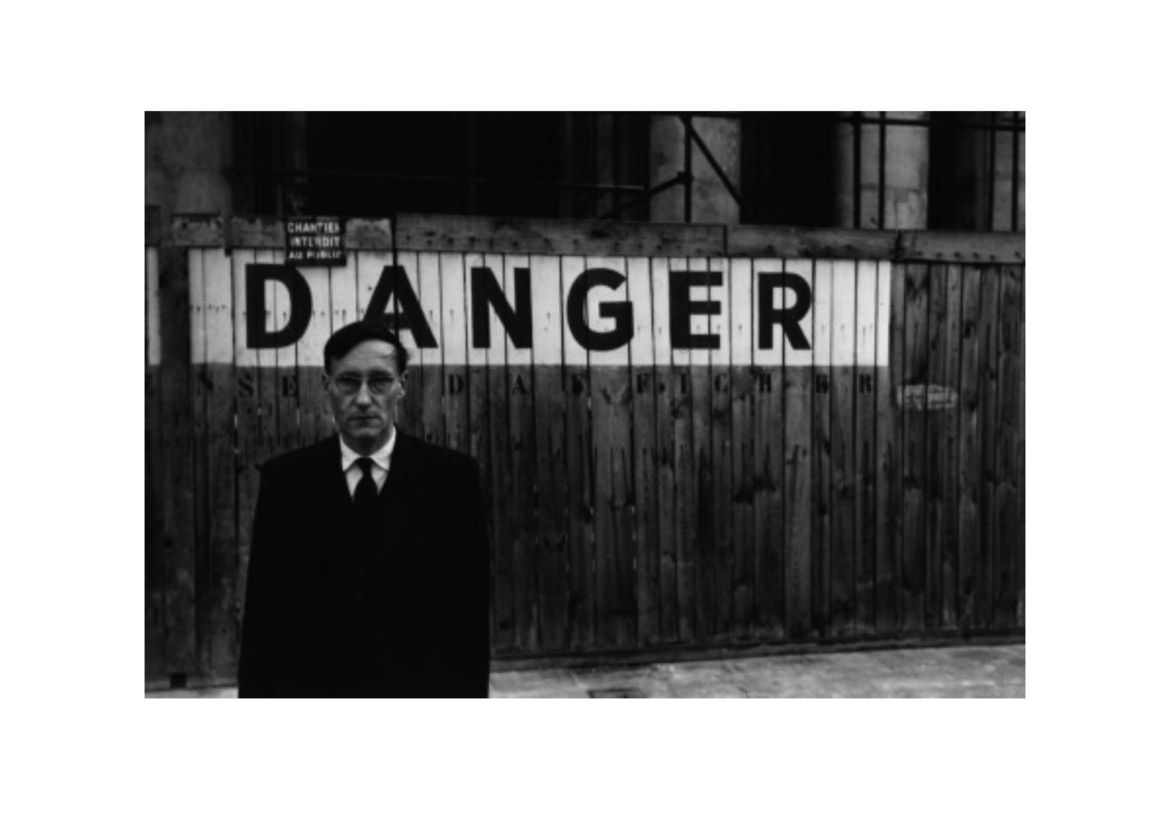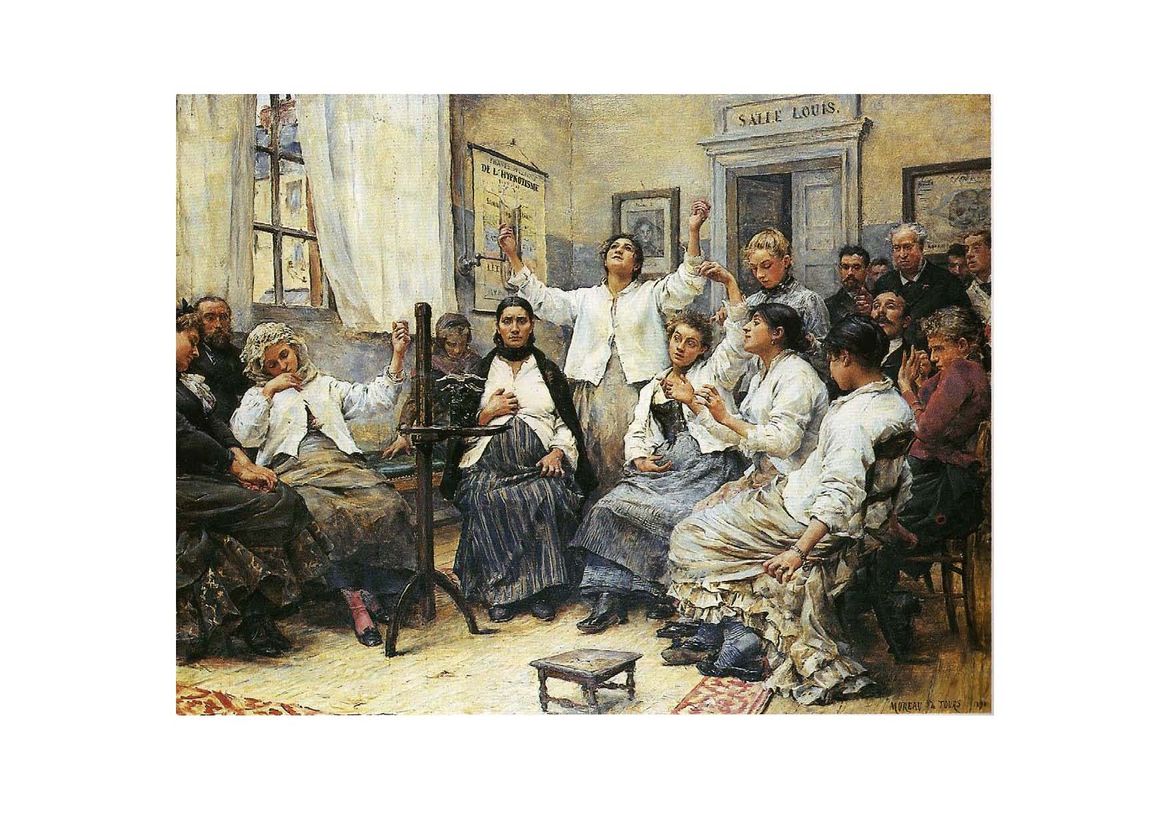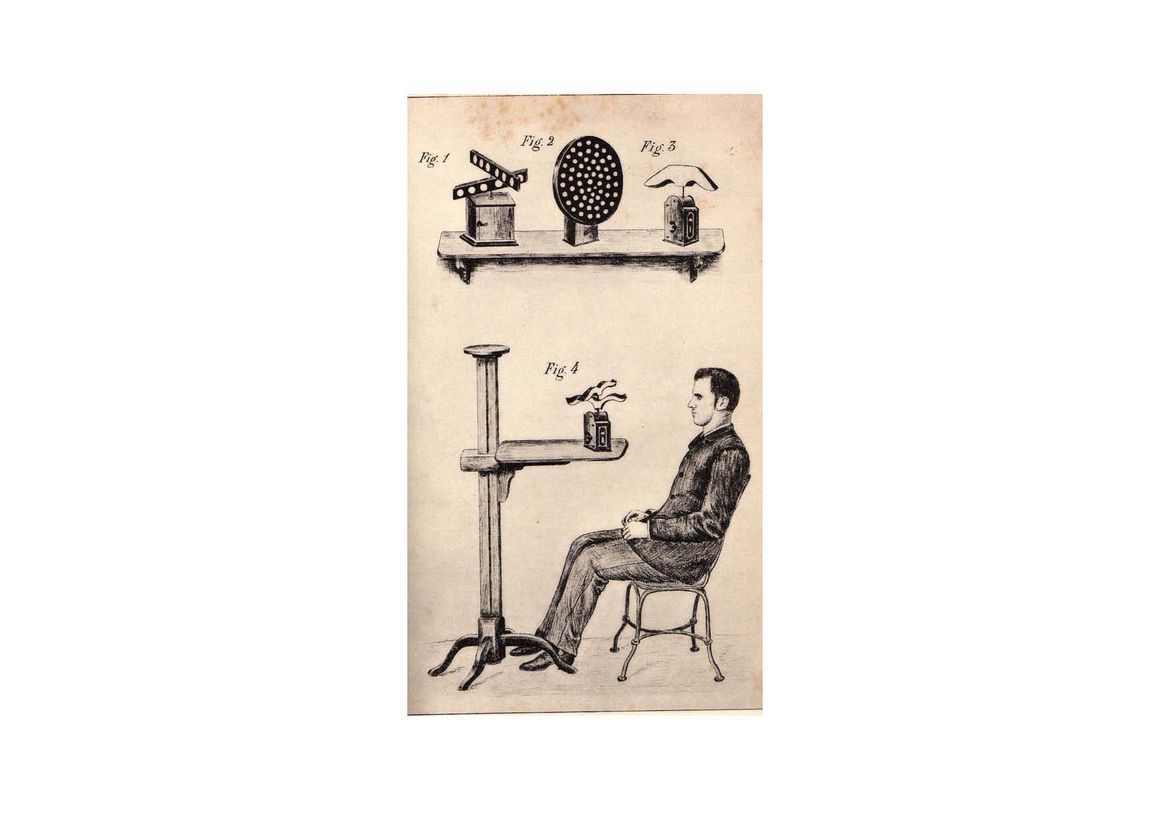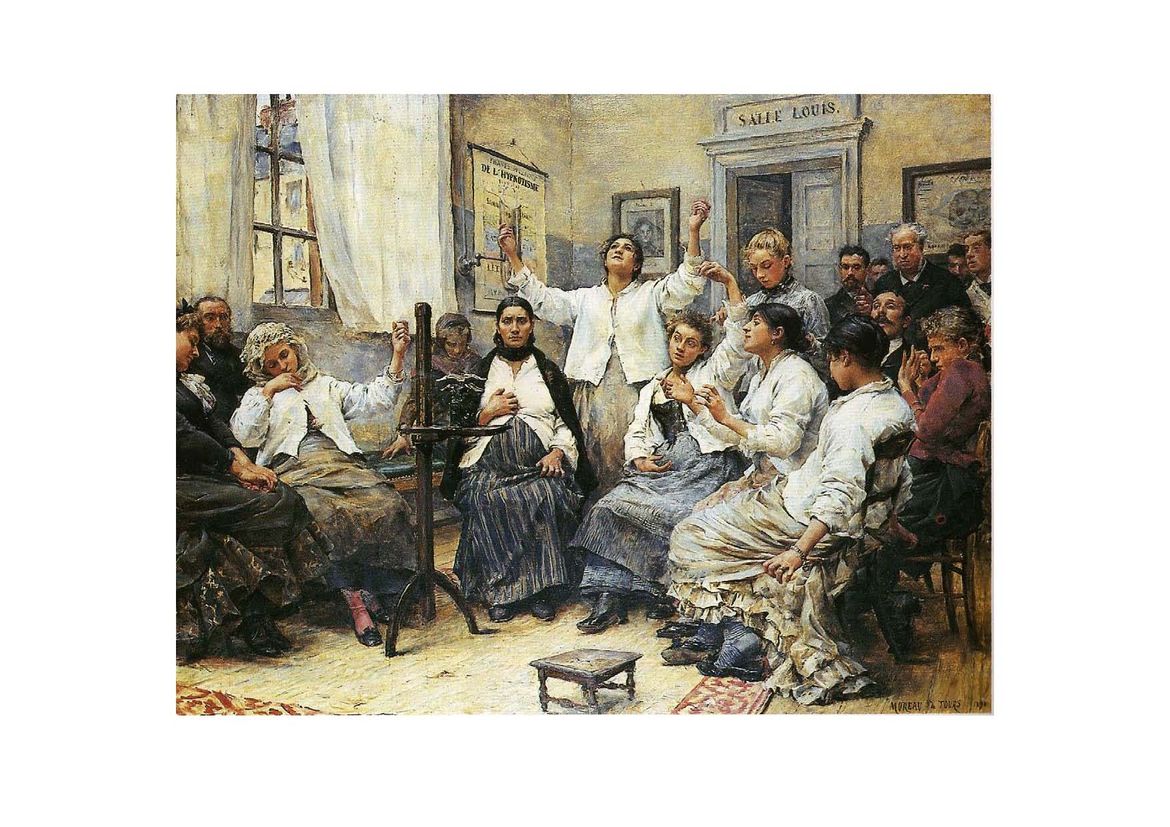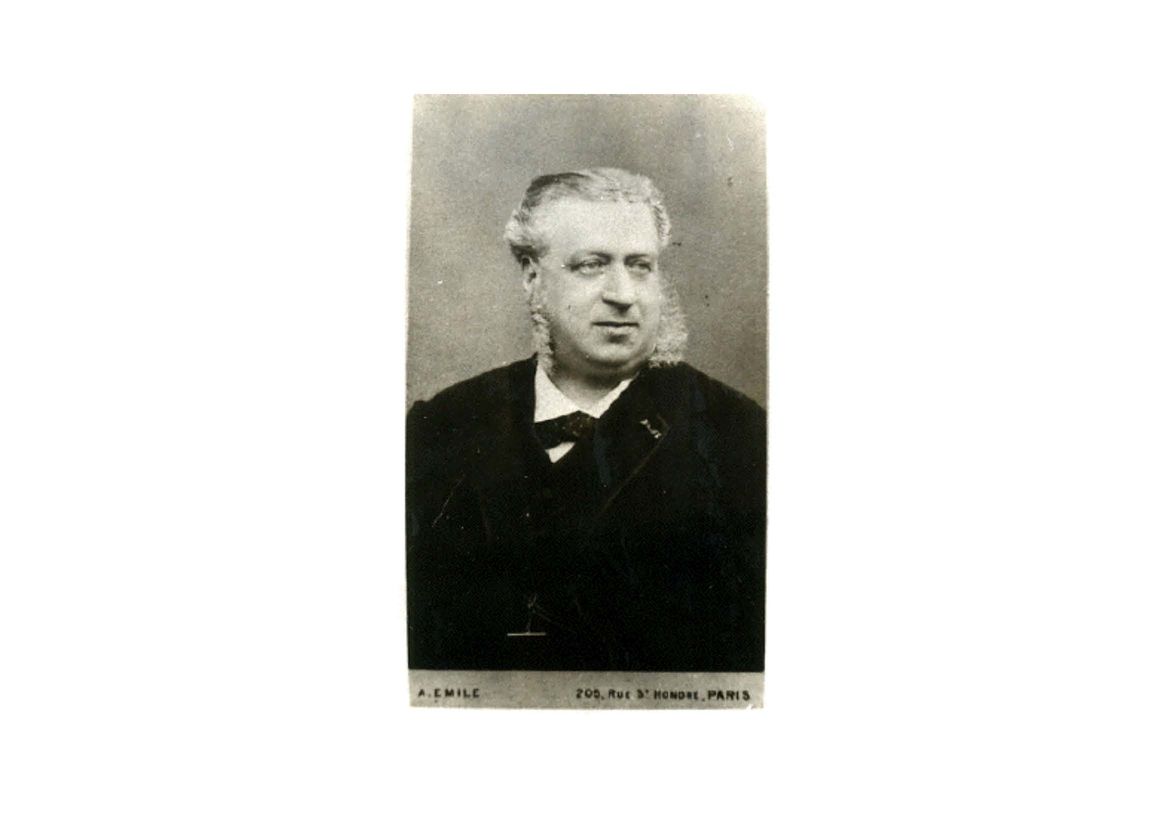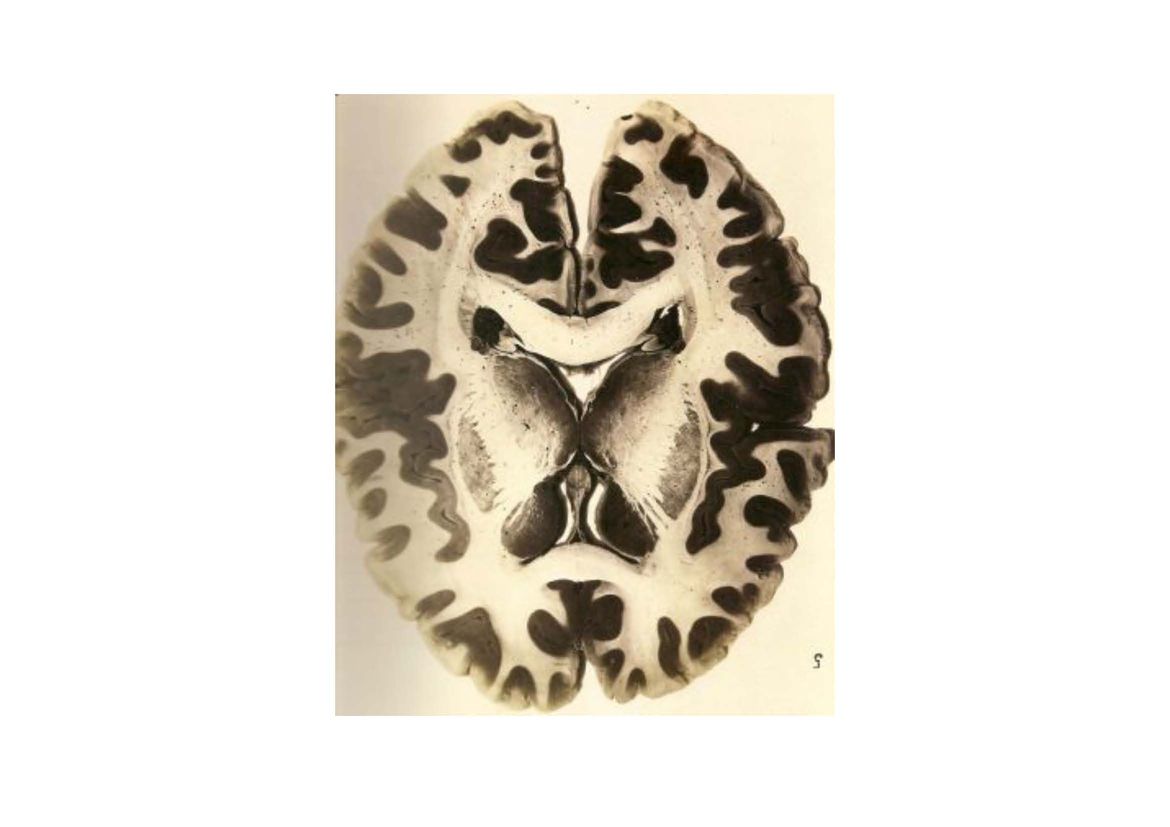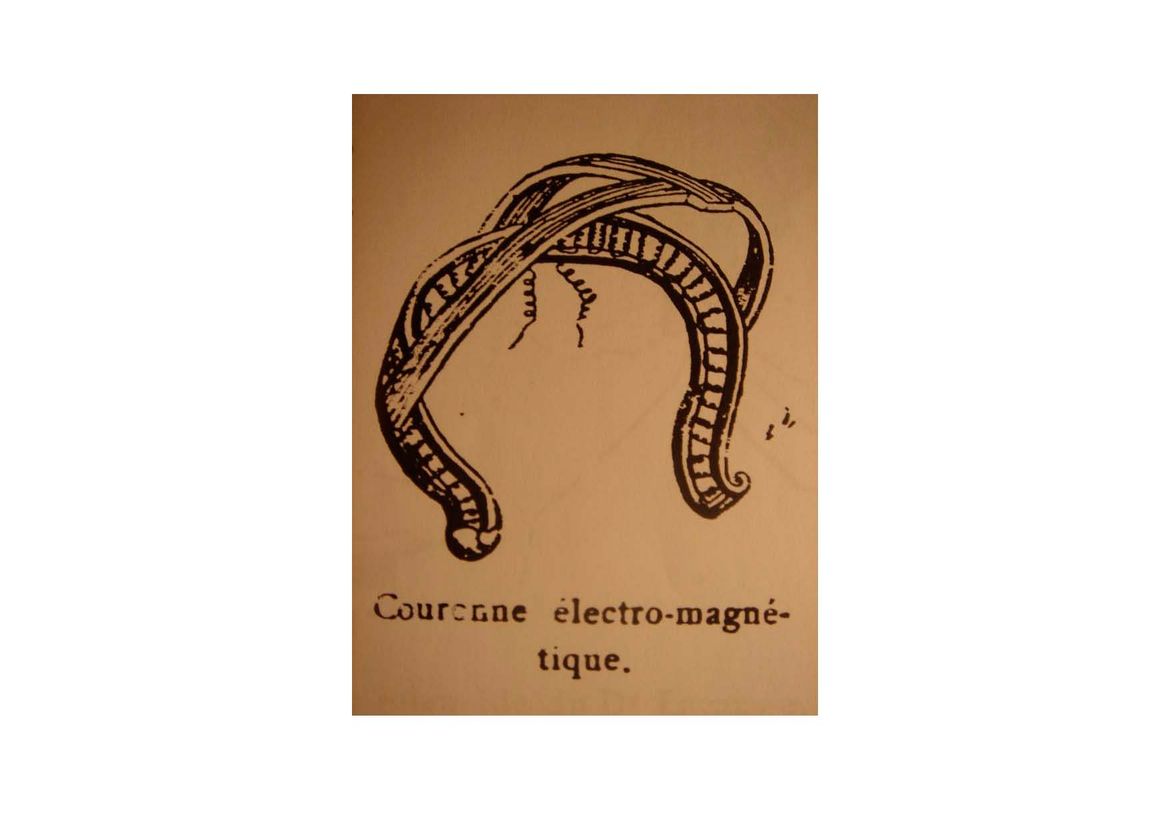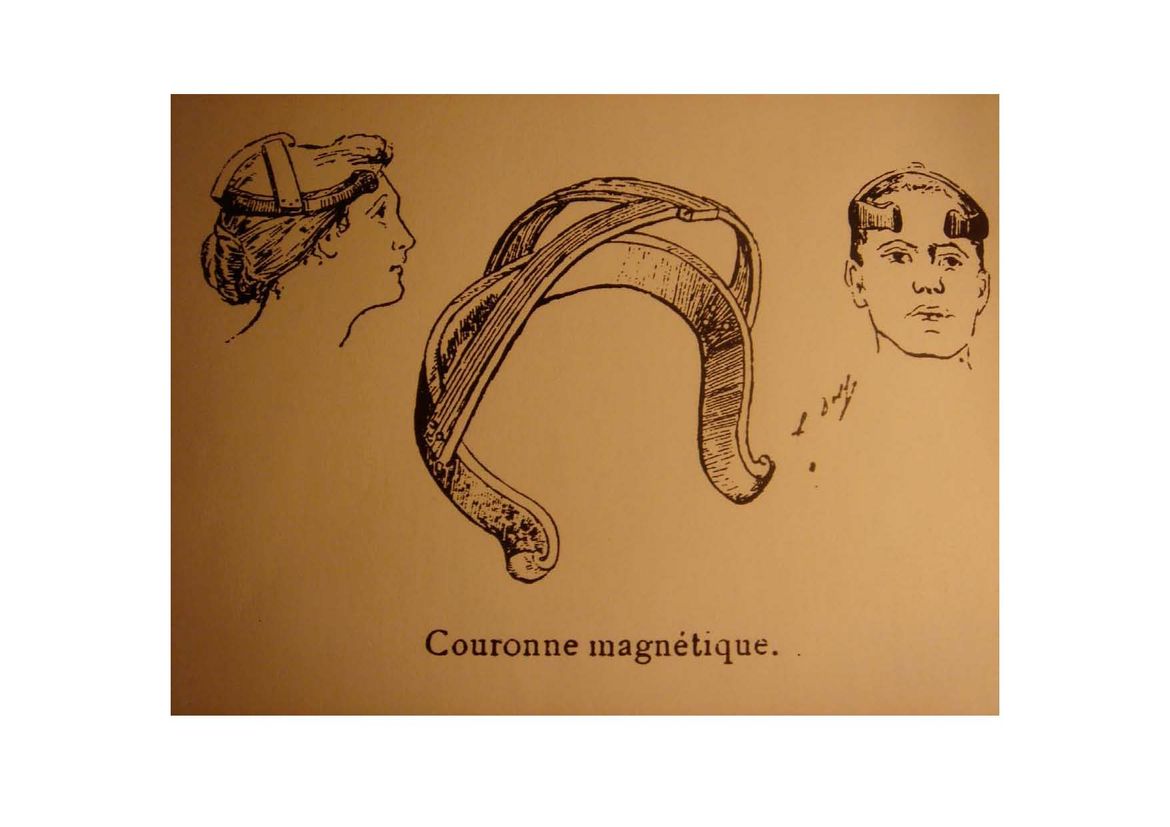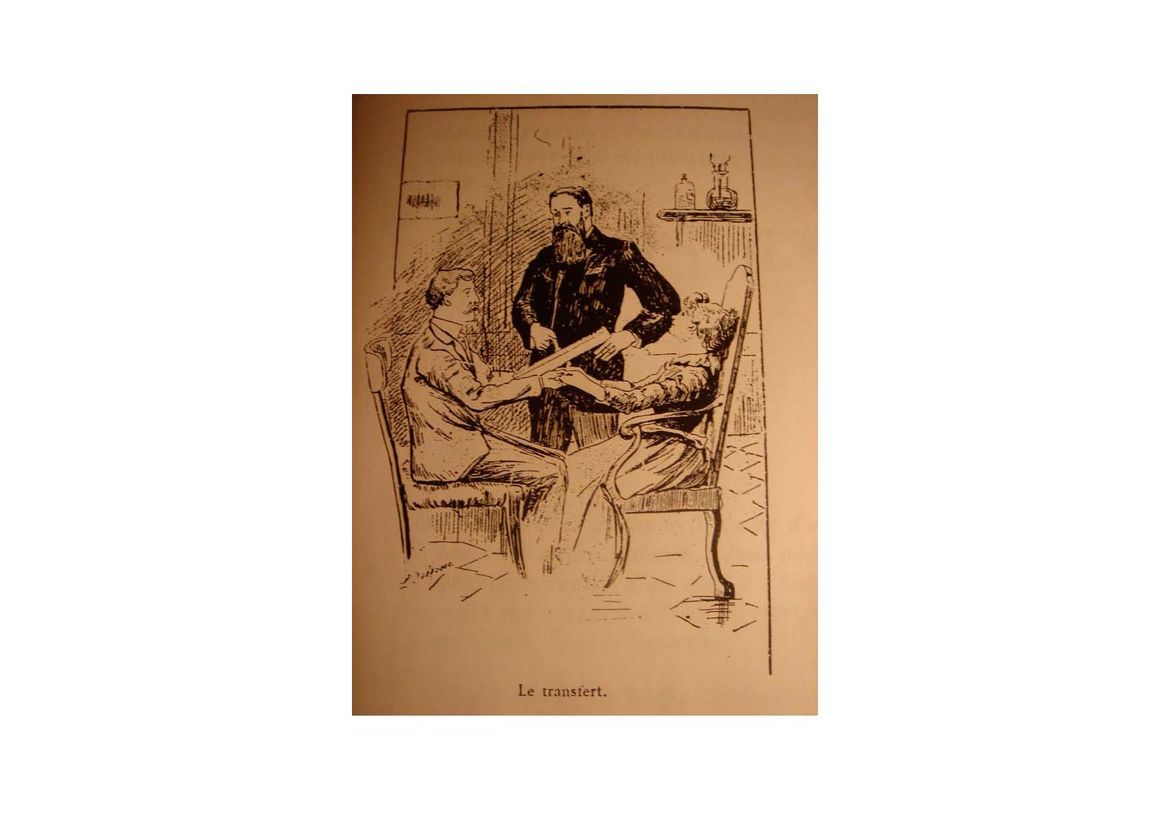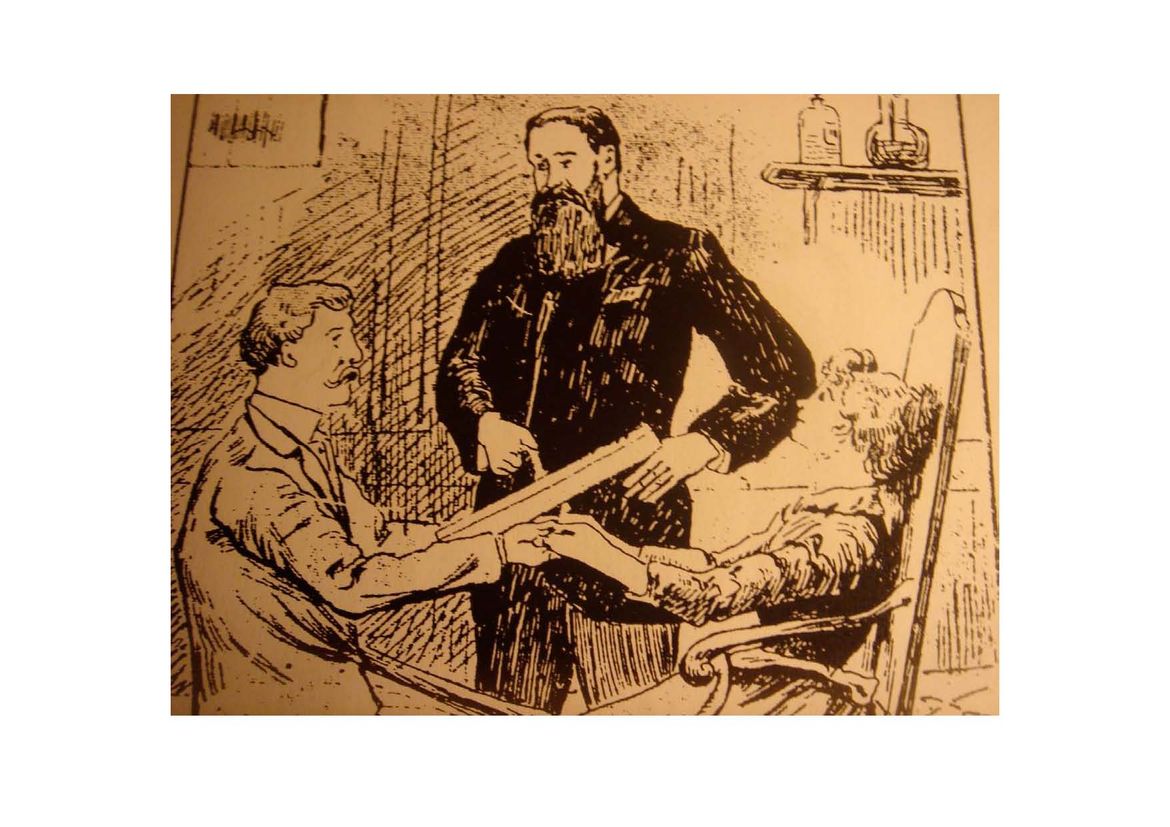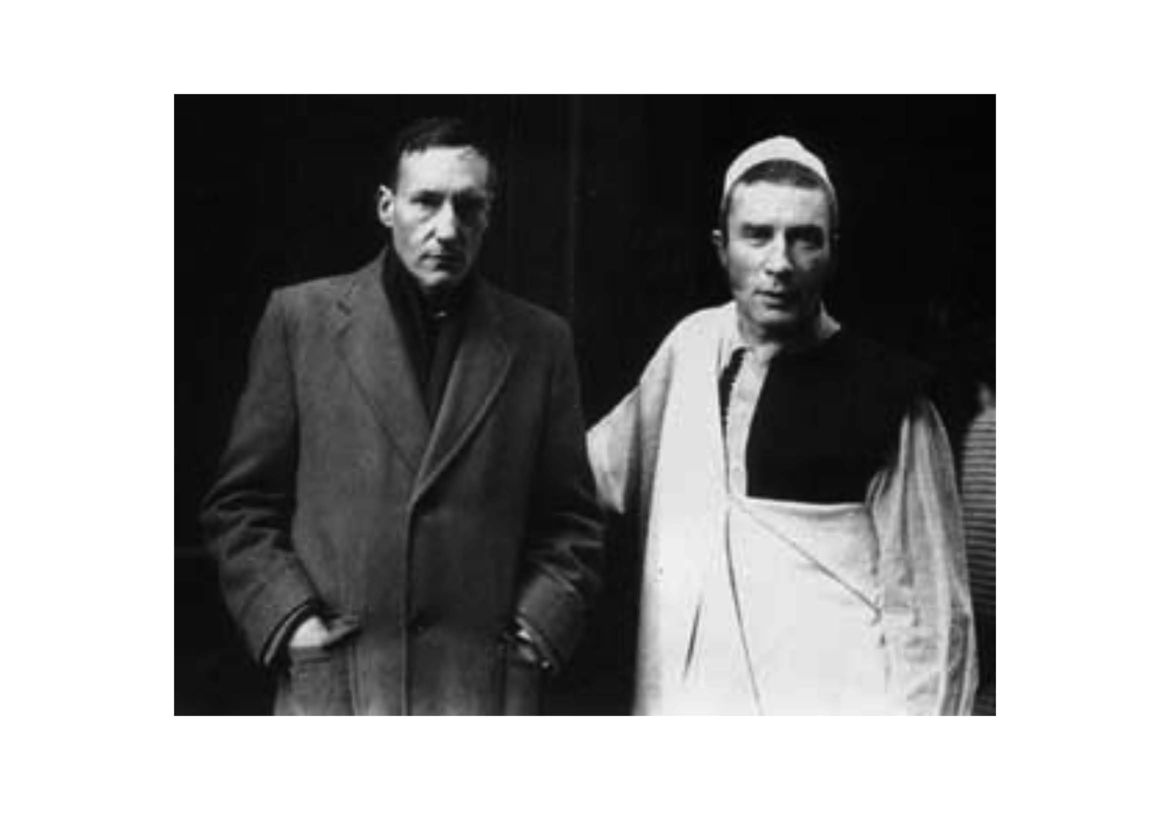Flicker: from visual to perceptual
Starting from Brion Gysin’s Dreamachine, Station 4 focuses on art experiments conducted on the effects of stroboscopic light and their effects on neuronal perception.
Work under study

Lectures
Arnauld Pierre : “Massages neuroniens : battements et flickers dans l’art optique et cinétique” [Neuronal massages: flutters and flickers in op art and kinetic art]
In parallel with the development of the first techniques for the investigation of brain rhythms and while cybernetics gives a neo-mechanistic interpretation of the functioning of the main nervous system, artists followed Nicolas Schöffer to force the gates of perception using visual devices aimed at moulding brain matter immediately, and creating immaterial signals for more direct communication with the viewer.
Slide presentation from Arnauld Pierre's lecture
Pascal Rousseau : “Dreamachine : le vacillement des identités” [Dream Machine: wavering identities]
The artist probes the links between thresholds of perception, hallucinatory techniques and questions of gender, with his starting-point being Brion Gysin's work and especially the latter's interest in the flicker technique.
Slide presentation from Pascal Rousseau’s lecture
Participants
Elisa Brune
writer (novelist and essayist) and science journalist
Denis Cerclet
anthropologist, lecturer at Université Lumière - Lyon 2
Arnauld Pierre
art historian, professor at Université Paris IV - Sorbonne
Pascal Rousseau
art historian, professor at Université Paris I Panthéon - Sorbonne
Work under study
Brion Gysin, Dreamachine, 1961-1979.
Perforated metal, electronic motor, lamp.
Musée d’Art Moderne de la Ville de Paris, legs de l’artiste en 1988.
Container
This serves as a research centre for the entire duration of the laboratory, progressively reporting the various stages to the public in the form of documentation and archives.
For Station 4, literature on the flicker phenomenon is displayed in the container.
Study day
Thursday, November 25, 2010 at IAC Auditorium
Lectures
Thurday, November 25, 2010 at IAC Auditorium
Arnauld Pierre : “Massages neuroniens : battements et flickers dans l’art optique et cinétique” [Neuronal massages: flutters and flickers in op art and kinetic art]
Pascal Rousseau : “Dreamachine : le vacillement des identités” [Dream Machine: wavering identities]

